Funding Pitch for the Film ‘Edjengi: The Lore Of The Jungle’
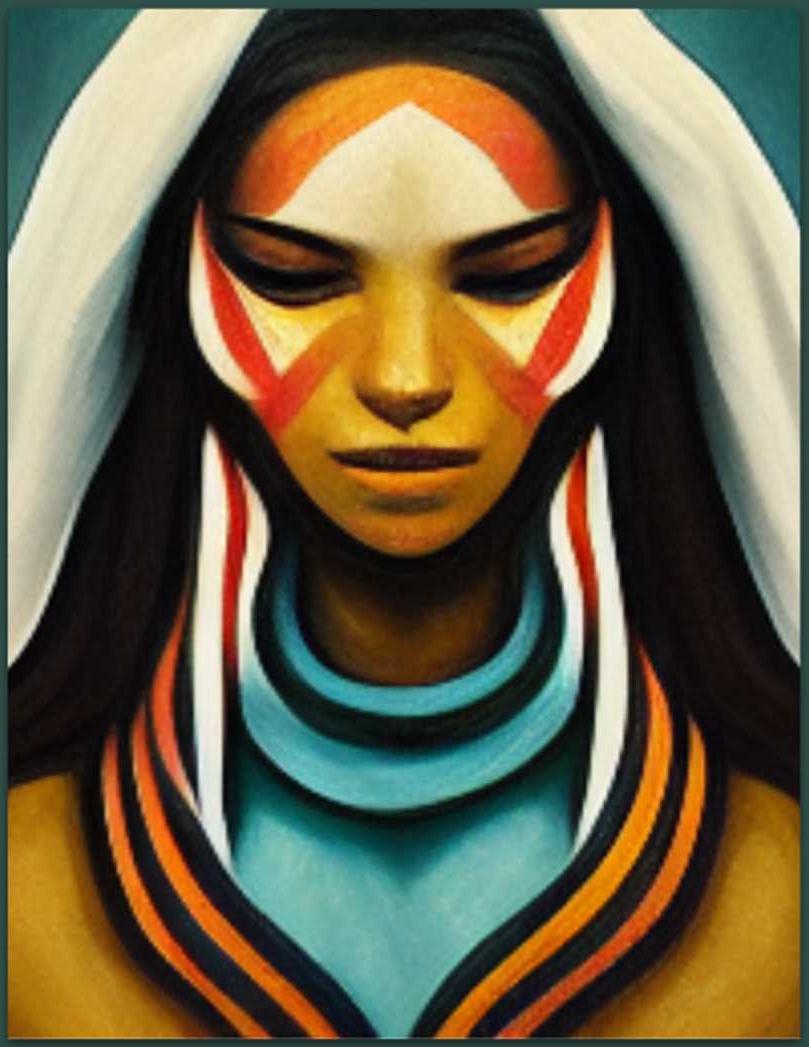
Wisdom of the Wilds
Indigenous Wisdom For Modern Times
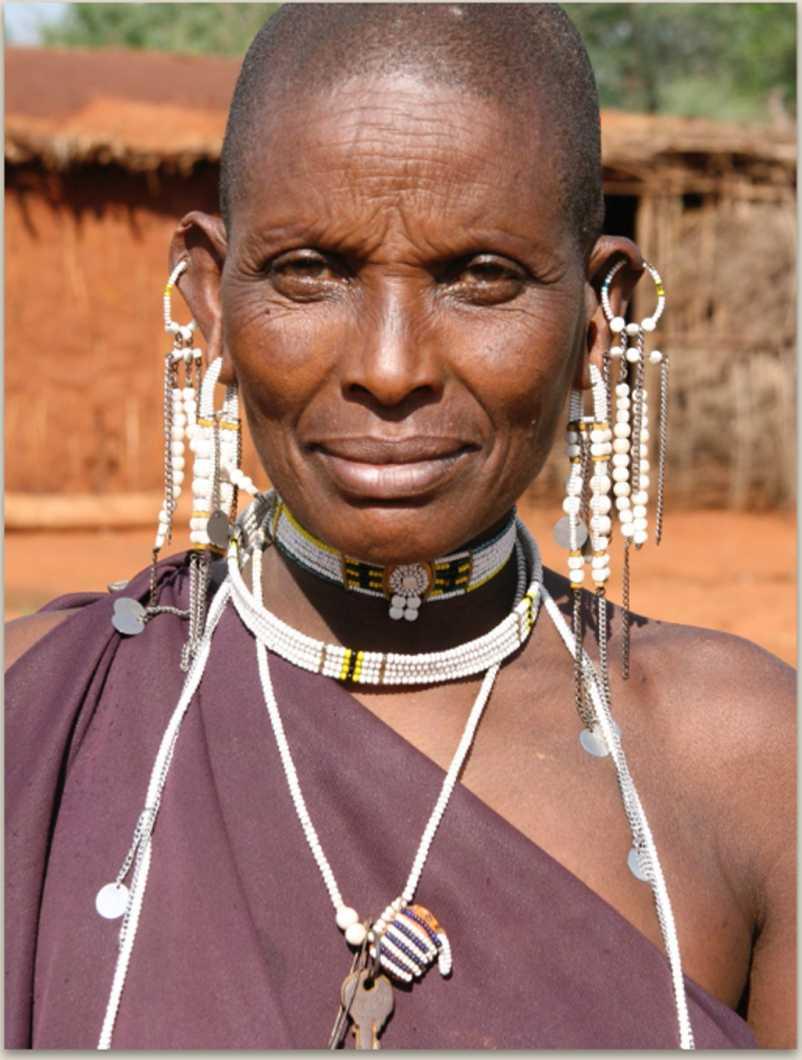
‘Equals’ is a feature documentary by BAFTA-winning filmmaker Bruce Parry that explores how little-known insights into our collective past could help create a pathway to a sustainable future.
In a time of widespread social and environmental distress, where do we look for solutions?
Bruce takes us on a journey deep in the forests of Africa and Asia, where lies a wisdom that could unlock our deepest human potential. A wisdom we all once knew.
Its name is Edjengi.
Executive Summary
“Equals” is not just a film; it’s an odyssey guided by the remarkable Bruce Parry, an ex-Royal Marine renowned for his award-winning BBC documentaries. In this captivating journey, Bruce immerses us in the untouched realms of indigenous tribes, where he undergoes a personal evolution that reshapes his worldview.
One of the film’s central encounters is with the Penan, a nomadic tribe deep within Borneo’s rainforests. Their radically different way of life challenges conventional societal constructs and inspires us to question our own assumptions about human nature and society.
“‘Equals’” is more than a documentary; it’s a profound exploration of human potential. Through Bruce’s experiences, we unlock the secrets of these forest nomads, gaining insight into their wisdom and unique social structures. This film doesn’t merely inspire; it provides concrete actions to build a more equitable and harmonious world.
Join us on this exhilarating and thought-provoking journey as “Equals” challenges boundaries, redefines possibilities, and invites us to embrace a deeper understanding of what humanity can achieve.
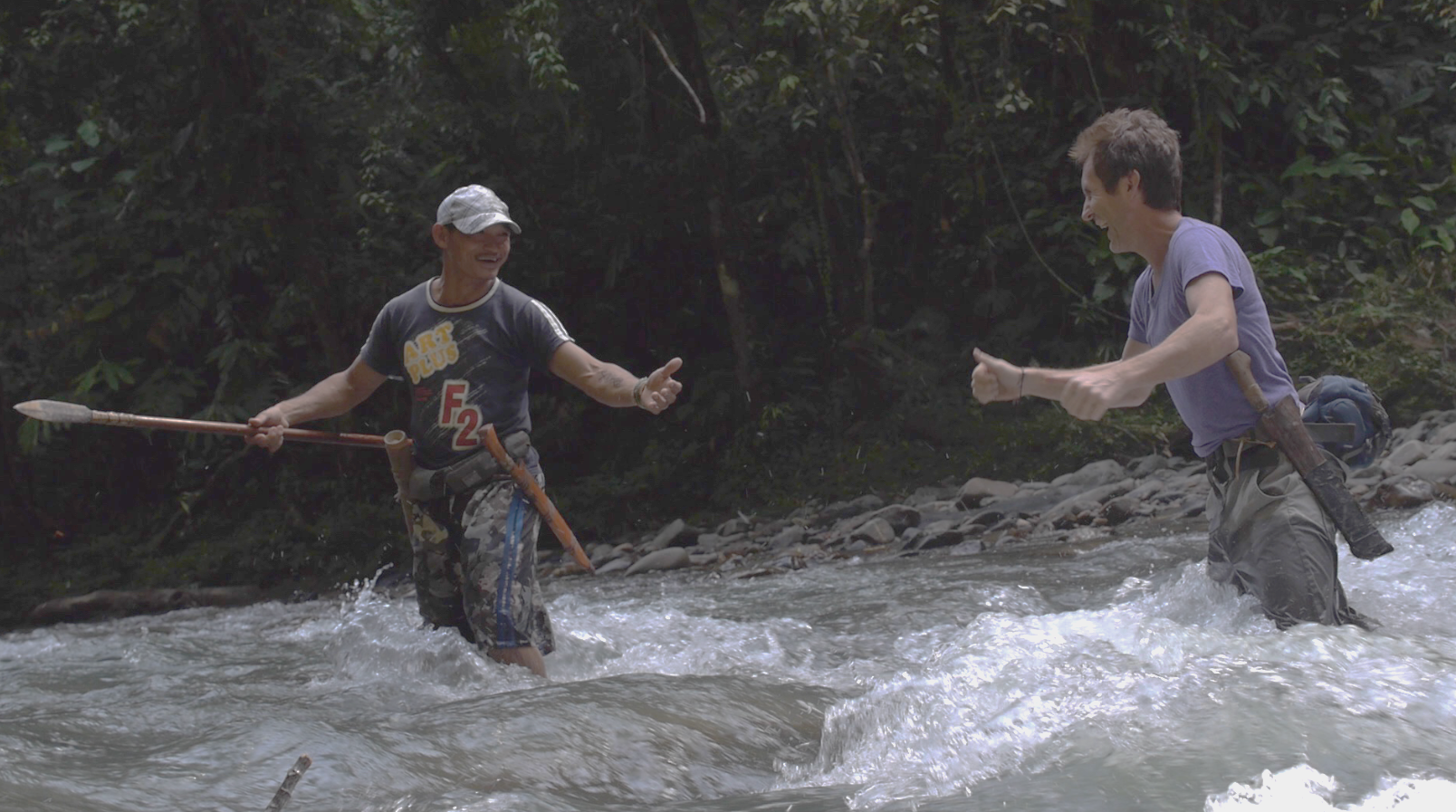
Bruce Parry
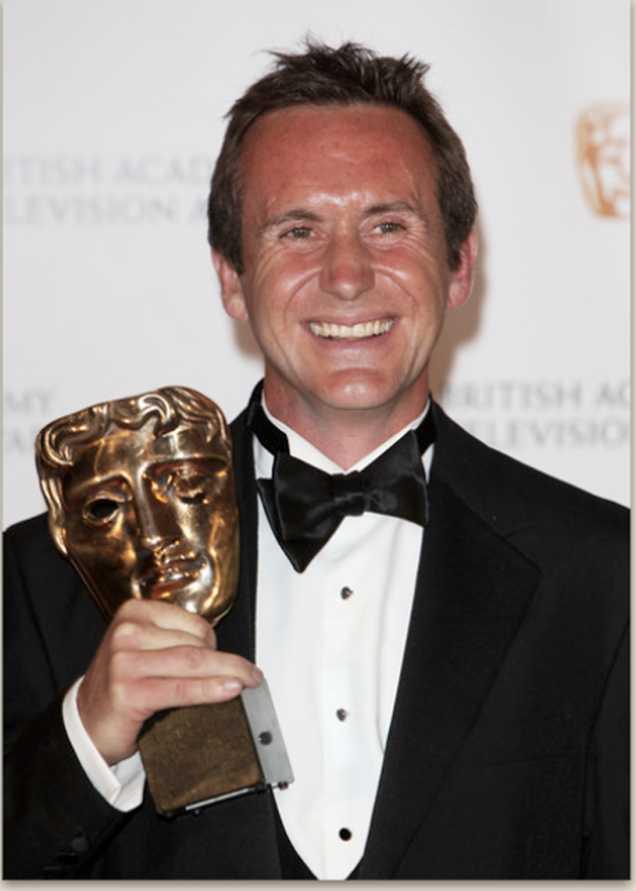
There’s no one quite like Bruce Parry. He’s tripped on every tribal intoxicant, hunted and eaten most things that run, fly or crawl, undergone the most bizarre rites of passage, jumped naked over cows, been stung by bullet ants, whipped with nettles, poisoned with frogs, blessed by shamans and had his genitals inverted by cannibals. As well as his celebrated tribal exploits, Bruce was also at the forefront of documenting the effects of climate change and globalisation in his BBC documentaries.
Bruce’s first-hand witnessing of the devastating impact of our civilisations on the planet has sadly led him to question whether our technological prowess will be sufficient for us to fix our predicted crises. Luckily, his unique experiences of living with indigenous societies have shown him that we can not only live more harmoniously together and with the planet but that we will all be happier and healthier for it. Unsurprisingly, therefore, Bruce is on a mission to share his insights and inspire audiences in the face of troubled times ahead.
Ex-Royal Marine and two-time RTS-winning ‘best-presenter’, Bruce has the credibility and the talent to tell this story. He captivates audiences with grace and charm and has a message which is both timely and vital. It’s a winning combination.
The Film
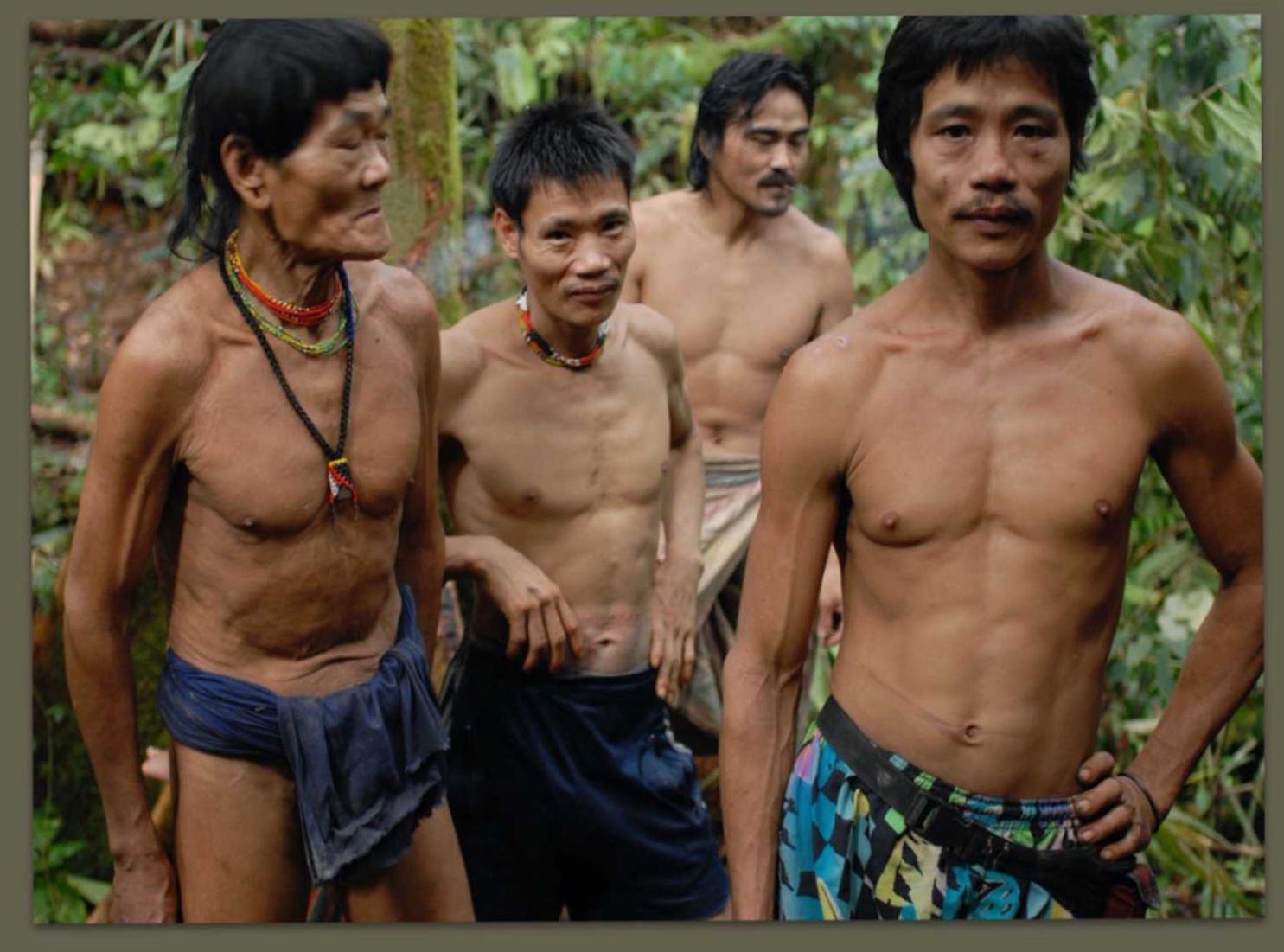
Act I
Using stunning footage from his famous BBC exploits, Bruce tells us of his adventures and how, despite having had so many wonderful tribal experiences, he still wondered whether we, as a species, were just too destructive and powerful for our own good.
All this changed when Bruce met the nomadic Penan of Borneo, a group of people who forced him to reevaluate everything he thought he knew about human nature and society; an insight so life-changing that he quit his job with the BBC at the height of his career to spend the next ten years investigating what he witnessed.
Equals will tell the story of Bruce’s revelation and how he devoted his life to investigating what he discovered. We are left asking, “Is Penan society a curious anomaly made possible by exceptional environmental circumstances, or do they represent something more profound?”
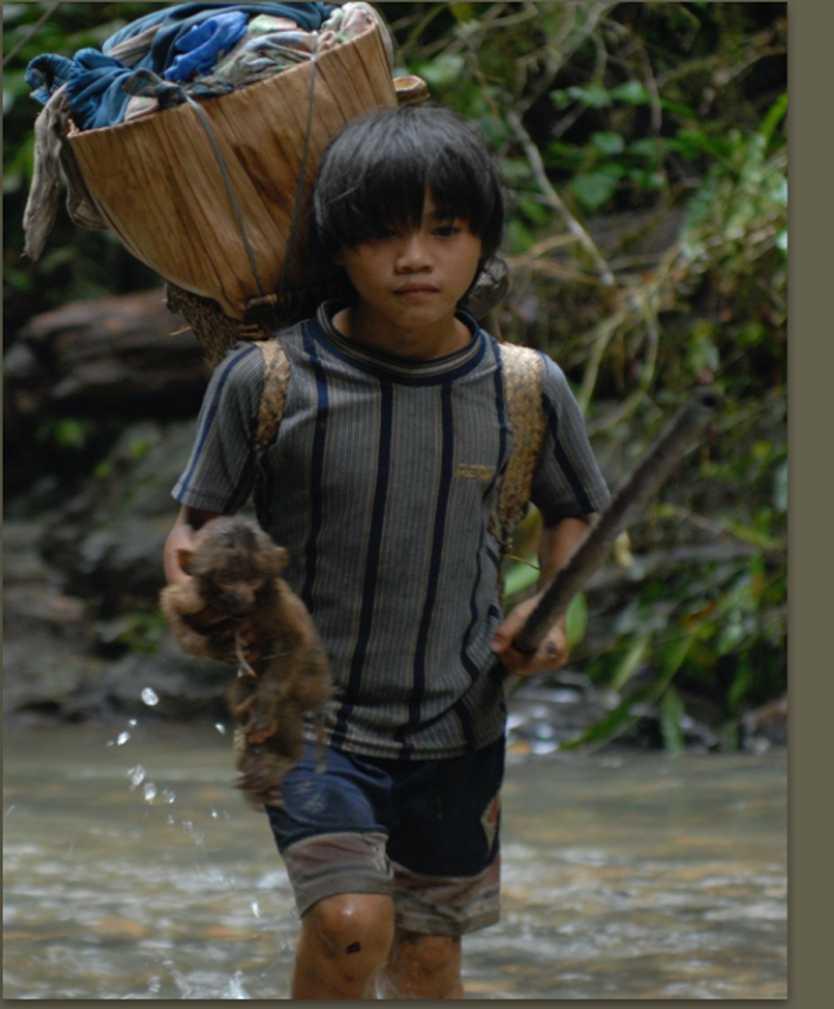
Act II
What Bruce stumbled across, and is little known outside academic circles, was that the Penan represented an extraordinary societal form which was, incredibly, at the heart of how all humans once lived; a phenomenal and world-changing finding that challenges many commonly accepted beliefs of what it means to be human.
Meeting with anthropologists, Equals dives into the story of the Penan. These incredible people live without hierarchy, without coercion, without ownership, without leaders; they are also the most peaceful people on the planet!
We join Bruce as he meets another egalitarian tribe — the Mbendjele people of the Congo — where he learns the tools and narratives that they use to maintain their harmonious ways of being. With the Mbendjele, we learn the story of why and how egalitarian societies were first created. We do this through witnessing the remarkable ritual known as ‘Equals’ — an extraordinary retelling of the revolution that brought about the shift from alpha-male-dominated hierarchies to the society-of-equals that the Mbendjele still live in today.
After a thorough investigation into our collective egalitarian ancestry, the film will explore the reasons why almost all human societies have shifted away from egalitarianism in the last 10,000 years — our dramatic and potentially suicidal return to power and hierarchy, asking...
“Would it be advantageous, or even possible, to apply the wisdom of our harmonious past to today’s complex civilisations?”
Act III
In the final act, Bruce will explore how many of the egalitarian principles could, indeed, be re-adopted universally, if desired. Furthermore, he will make the case that, not doing so, may well be disastrous for us all, and the planet.
The film will show how humankind is at a remarkable moment in time. A time in which we are not only discovering the knowledge of how our ancestors maintained their resilient and harmonious ways for so long, but also, that the technologies needed to apply their egalitarian principles are available for the first time ever, globally. This remarkable confluence of events, when combined with our universal need to find solutions for our projected global crises, makes the film Equals exciting, timely and vital.
The final part of the film will lay out a clear and tangible roadmap for action, which will be both understandable and manageable. It will invite us to reimagine our health, our schooling, our government, our financial systems and our relationships, using examples of where such ideas are already being enacted with profound results.
The film will then end with a return to the animated ‘impossible dream’, except, this time, the dream will not only be possible but also clearly achievable.
The Lore
Getting your head around the principles and practices of egalitarianism is not immediately straightforward. Many (if not most) of the narratives of today’s complex civilisations take us in the opposite direction. It is hard to see the world through this alternate prism — until the Lore is understood.
Lore is not Law. Lore is not written or centrally enforced, it’s an intuition and a knowing. The Lore of Egalitarianism is quite simple: POWER, in its myriad forms needs to be playfully but assertively kept in check. Not to do so will cause untold damage to society and to our natural home.
This Power can be expressed through hierarchy, ownership, accumulation, showing off, status claims, competition and coercion. This Power tends to subvert, manipulate and coerce. This Power is corrupting of even the most unassuming and benevolent of people and it reveals itself in the most unlikely of ways.
We humans are so finely attuned to noticing this power. Our species has evolved to feel it’s every attempt to reveal itself, and our egalitarian cousins show us how they name it, speak to it, play with it, hold it to account and caringly dissolve it. This must be done constantly and by everyone. Each member of society has a duty to partake in this play. Unchecked, whole civilisations will crumble, nurtured and held with wisdom and everyone’s a winner. It’s the Lore!
Production Design
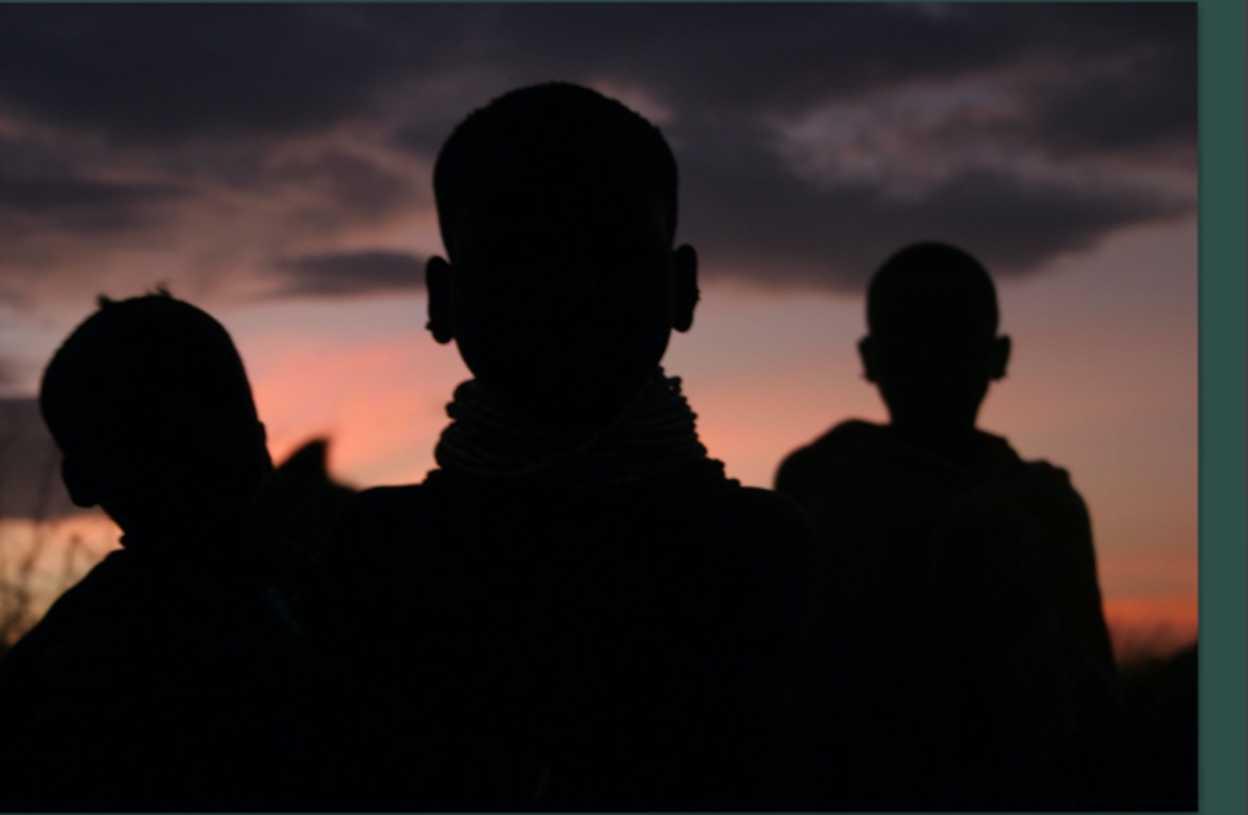
The film will be intimate and raw, often breaking the third and fourth walls. It will reveal how indigenous wisdom can help humanity’s current crises through a positive, inspirational lens.
The backbone of the film will be an impeccably shot interview with Bruce, who is the audience’s avatar.
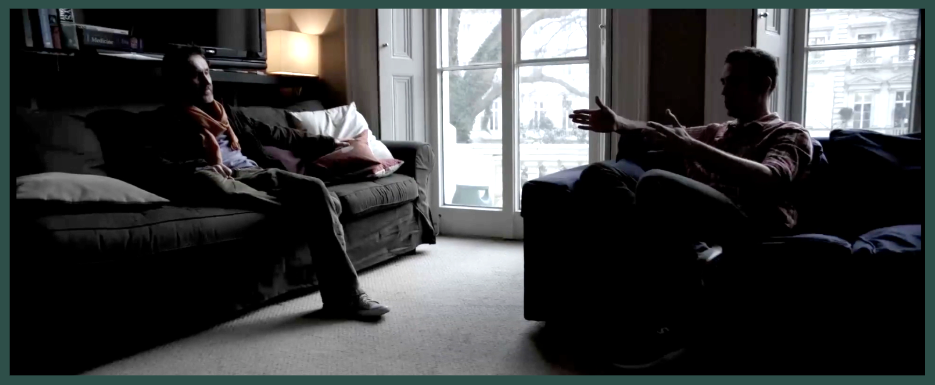
Production Philosophy
The film aims to live by its own principles, a feat which is both exciting and scary
Journeys
Bruce will take us on a number of fascinating journeys, each with a different look and feel, including:
-
Reflections (past) on the lessons he learned whilst travelling the world with the BBC and making his own films, utilising the footage of those trips to explain his insights.
-
Meetings (present) with experts to delve deeper into theories that bolster and challenge his claims.
-
New adventures (present) to some of the most remote and little-known tribal peoples in the world who embody the cultural traits that Bruce has been talking about.
-
The world of imagination (future) using illustrations and animation to bring certain ideas to life.
The edit will seamlessly weave these different journeys while captivating audiences and inspiring them into action. The journeys will be the starting point for exploring larger, subjective truths about human nature, society and how to face humanity’s impending crises.
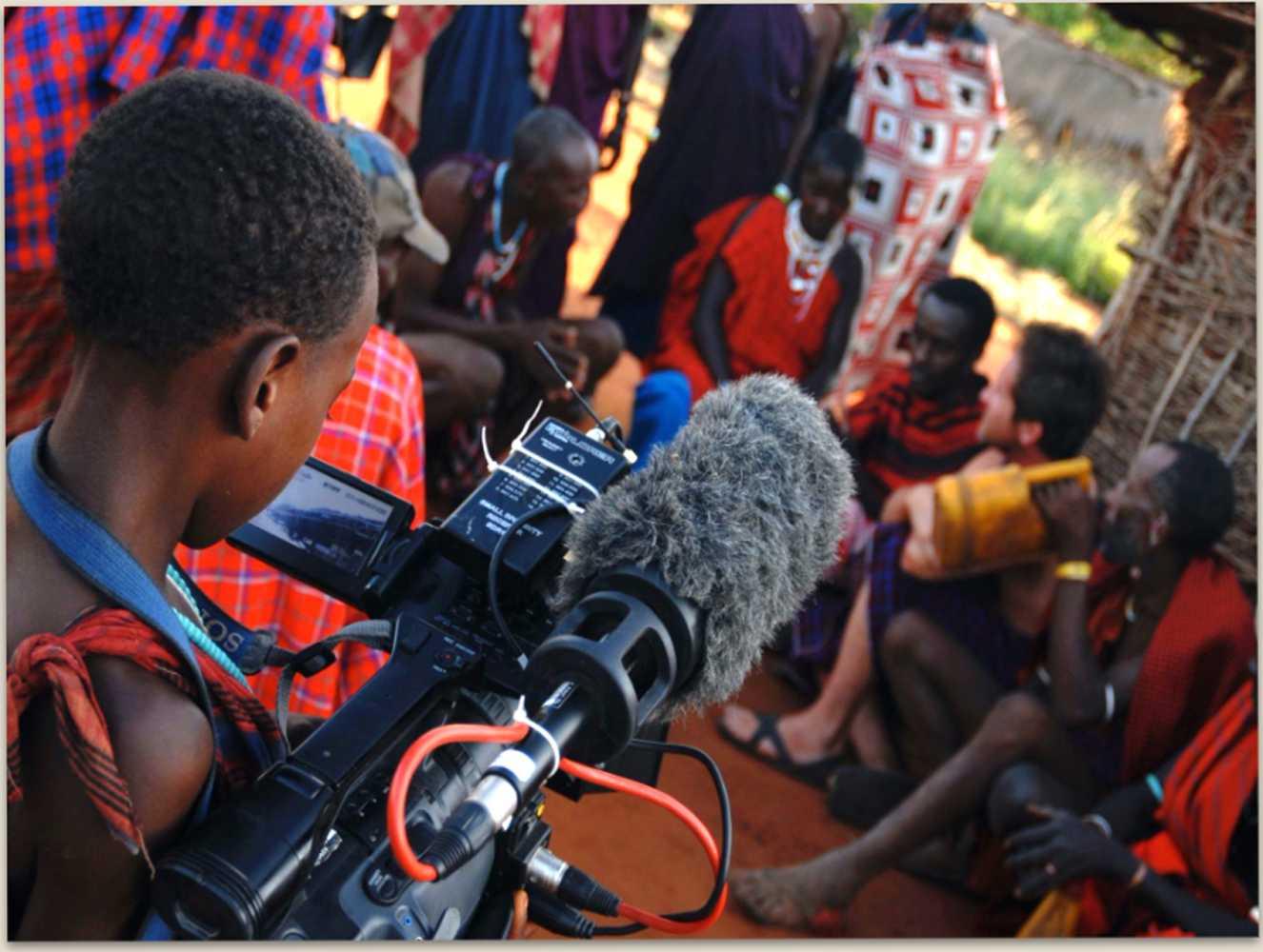
Locations
Alongside the scenes with Bruce and the interviews in Europe and North America, the remainder of the film will focus on the tribes who affected Bruce so deeply. They live in some of the most remote and stunningly beautiful places on Earth, including:
Borneo. The lands of the Penan people are the vast and untamed rainforests of Borneo, characterised by majestic trees, winding rivers, and a rich diversity of flora and fauna, once inhabited by tiger, elephant, orangutan, rhino and gibbon.
Tanzania. The lands of the Hadza are a captivating tapestry of diverse landscapes. From vast grasslands and acacia woodlands to rocky hills and dry riverbeds.
The Congo. The lands of the Mbendjele people are a lush and dense rainforest in the Republic of Congo, where trees form a verdant canopy, and the symphony of exotic wildlife accompanies the harmonious melodies of a traditional way of life.
Malaysia. The lands of the Batek people in Malaysia encompass tropical rainforests, filled with towering trees and vibrant foliage, creating a breathtaking backdrop for their nomadic lifestyle and their profound knowledge of the forest’s resources.
Production
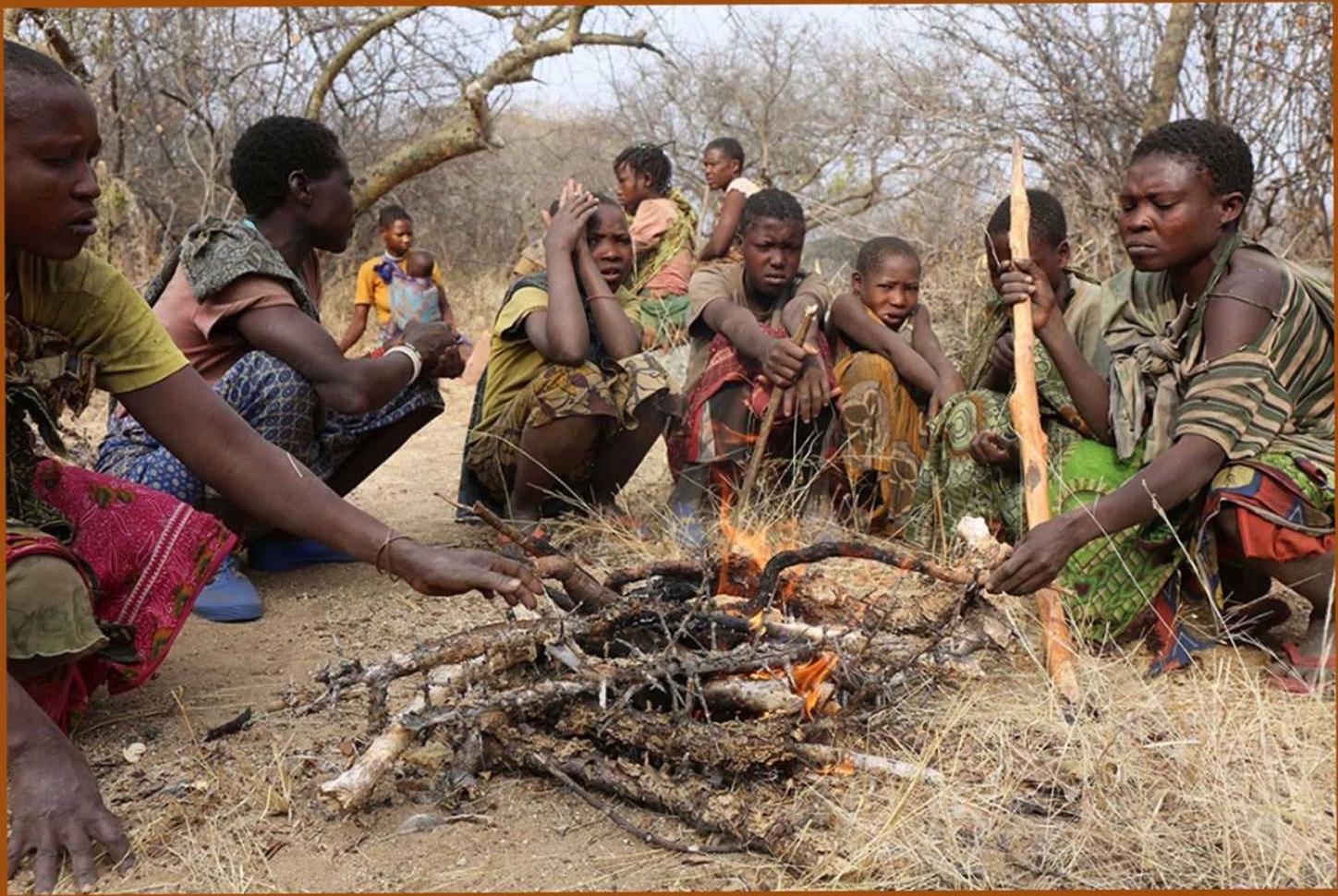
The Team
Bjorn (to add)
Bruce Parry
Bruce is an explorer and BAFTA-winning documentary presenter, famous for his immersive style of investigation into difficult subjects in remote and testing locations. His time living with the indigenous peoples of the world has given him a unique insight into the human condition and his time spent visiting places on the environmental frontline has allowed him a broad perspective of our place on the planet. Bruce’s documentaries have been acquired by and shown in over 150 territories, cementing his place as one of the world’s most successful documentarians.
Beatrice Andrew
As an expert in human behaviour, specialising in the field of neuroscience and behavioural change, Bea runs a behavioural science consultancy, focusing on how to communicate with audiences on a deeper psychological level. She is shaping the film’s narrative and script, to maximise audience engagement. Bea will also be the off-camera voice questioning Bruce to keep the narrative flowing fast and clear.
Budget
The film is currently in the pre-production phase, and we are seeking financial support to bring this vision to life.
The budget of £850,000 will cover crucial elements such as securing BBC archival footage, filming in the remote jungles of Africa and Asia, a comprehensive post-production process, and a strategic distribution plan to ensure the film reaches a global audience.
Exclusive Investor Benefits:
We invite you to become an integral part of the “Equals” journey and the movement it seeks to create. By contributing, you will gain exclusive access to the following:
-
Be Part of the Project: Your name will be acknowledged in the credits of the film as a valued supporter, leaving your mark on this important documentary.
-
Exclusive Events: Receive invitations to private screenings, Q&A sessions with the directors and crew, and exclusive events hosted as part of the “Equals” movement.
-
Behind-the-Scenes Access: Get exclusive updates from the production, including behind-the-scenes footage, interviews, and insights into the making of the film.
-
Limited-Edition Merchandise: Receive a special-edition “Equals” item, such as a signed poster or collector’s edition of the documentary.
-
Early Access to the Film: Be among the first to view the completed documentary before its official release, either through a private online link or an in-person screening.
Specific request:
-
We are currently seeking an initial £100,000 investment to support the core team and crew. Contributions of any size are welcome, and all donations will directly fund the production and help bring this vision to life.
Next steps:
If you would like to contribute and support the creation of “Equals,” please get in touch with Bea for further details and information on how to make a direct
donation: Email: bea.andrew@gmail.com
Distribution
DISTRIBUTION AND MARKETING
We anticipate a ready and willing international market as a result of the on-going global popularity of Bruce’s Programmes. His demographic is across the board of age, sex and social spectrum making him a very sellable commodity. He is especially popular amongst peoples otherwise disillusioned with television, making his switch to feature docs a very exciting and potentially profitable opportunity. Remarkably he is popular in hard to reach markets such as China, Korea, and South America as well as being popular in nations traditionally unwilling to have English speaking presenters such as France. In America his programmes have been bought and co-produced by The Discovery Channel as well as Animal Planet USA.
OUTREACH AND ENGAGEMENT
We fully expect Quest to attain significant international attention. Not only is the story relevant for every human on the planet, it is also completely in line with much that is popular...blah blah blah Film festivals/chat shows/school, university, public lectures
INTERACTIVE ELEMENTS
A large web presence is planned during the making of Quest. The aim will be to engender a global conversation around the core strands of the project, with on-line discussion forums covering all pertinent areas, from indigenous wisdom to ethno-botanical research, spiritual enquiry, neuroscience, anthropology, evolutionary psychology and biology. The use of ratings and tagging will allow self-regulating systems to evolve and thereby filter the information. The site will also allow the team to upload ‘rushes’, ‘dailies’ and ‘rough-cuts’ for viewing and comment, plus provide an expanding resource of relevant links and further reading. By linking Bruce’s personal blog and vlog to Facebook and Twitter, viral sharing of the community and the resource will also be encouraged.
Content
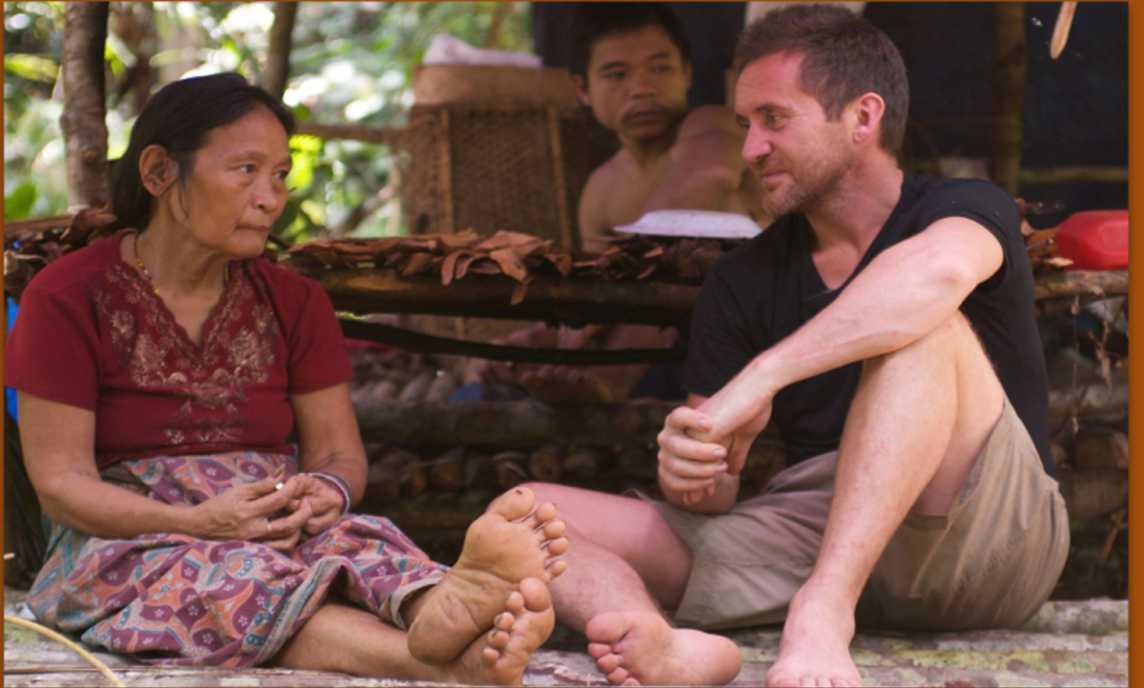
Pre-Title — Sequence “The Impossible Dream”
The film opens with a dreamlike sequence that spins a seemingly impossible dream. It invites the viewer to imagine a world where no aggression, coercion, or the stresses related to status, competition and greed are present — a society of equality and harmony, where contentment and well-being flourish.
What the audience doesn’t know at this stage is that this impossible dream is not an idealised fantasy at all, but in fact, a living reality, as they shall soon find out..
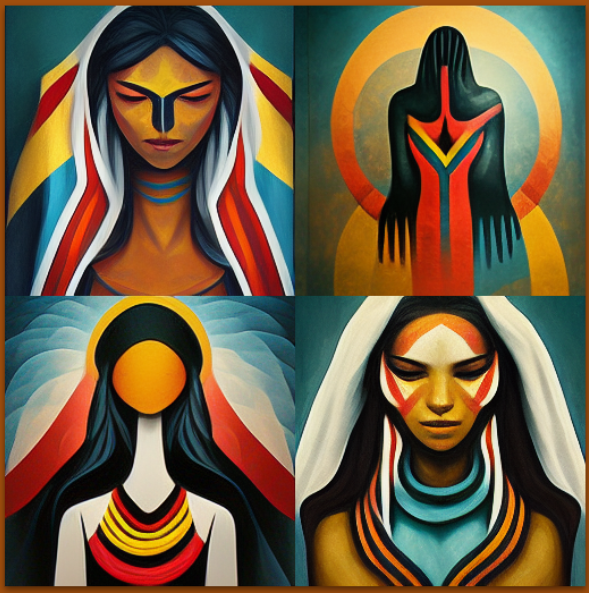
Animation Script
Final script to be completed — Below is a flavour of the story that will be told during the animation.
“Envision a world where many of the pressures of our current reality are dissolved. Picture a society that celebrates each individual’s unique talents and contributions, where no one’s status is elevated above another’s — a world where power is shared among the entire population, eradicating the accumulation of wealth or possessions as measures of worth. In this realm, corruption and unfair systems of oppression cease to exist, and the symptoms of societal stress dissipate. Health and well-being flourish, while violence and aggression dwindle.
In this world, people select their work and life partners based on collaborative abilities rather than competitive success. The need to showcase material wealth vanishes, as individuals no longer rely on consumption and status items to validate their self-worth and attractiveness. Instead, they invest their leisure time in fostering social connections and strengthening communal bonds. Crucial decisions are made collectively, empowering everyone to have a voice in shaping their own lives. A profound sense of freedom permeates the air, awakening a deep-seated appreciation for the well-being of fellow beings and the environment that sustains them.
With newfound empowerment, people are driven to convene and engage in meaningful discussions about important matters. They learn the art of equitable cooperation, transcending power dynamics that once clouded interactions. As equals, wounds that were once concealed, rise to the surface, visible and open for observation. Guided by love and compassion, these wounds are acknowledged and healed.
Gradually, a collective understanding emerges — humanity thrives and finds greater happiness when working together. Life harmonises and the aspiration for unity and cooperation replaces individuality and personal gain.”
Interviews
Bruce
The heart of the film centres on an engaging and visually stunning multi-camera interview with Bruce, as he intimately shares his personal story and profound insights. Guided by thought-provoking questions from the director, Bruce’s narrative unfolds, revealing his upbringing in an institutional setting and his successful adaptation to the competitive and hierarchical culture of the Royal Marines, lending credibility to his journey of discovery.
The interview primarily focuses on Bruce’s captivating adventures and transformative encounters with tribal communities around the world. From his early travels to the pivotal moments when he meets the Penan people in Borneo and the Mbendjele, Bruce takes us on an enthralling exploration of what it truly means to live among egalitarian societies. Through his experiences, we gain valuable insights and timeless lessons that resonate with our lives today.
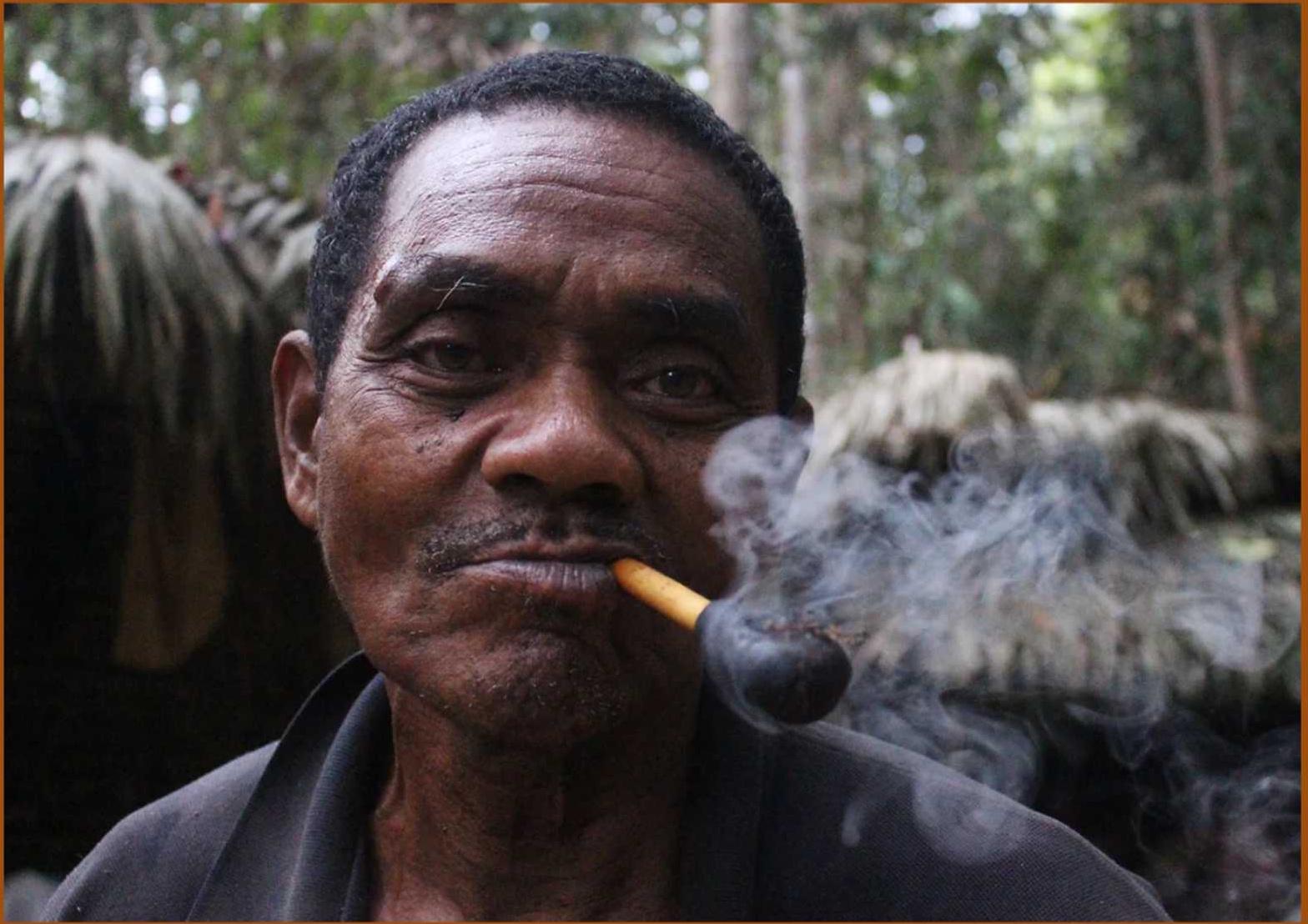
Richard Wilkinson
Professor Richard Wilkinson is a distinguished scholar with extensive expertise in the field of social epidemiology. As a Professor Emeritus at the University of Nottingham Medical School and an Honorary Professor at University College London, he has dedicated his career to investigating the consequences of inequality in society.
Richard Wilkinson’s important research has profoundly shaped our understanding of how inequality impacts people’s health and well-being. His work challenges the conventional belief that the wealth of a society determines its outcomes. Instead, Wilkinson asserts that it is the level of equality that truly influences social disruption and individual experiences, emphasising that the feeling of being poor, rather than material poverty itself, plays a significant role. This insight aligns with the wisdom of egalitarian tribespeople, who recognise that the psychological stresses caused by status disparities are at the heart of the vast majority of societal issues.
Richard’s groundbreaking research demonstrates how societies with greater income equality tend to have better overall health, lower crime rates, higher educational attainment, and improved social cohesion. As an advocate for equality, Richard has been an influential voice in shaping public policy and raising awareness. His research has informed debates on economic inequality and inspired governments, organisations, and activists worldwide to address and reduce social and economic inequalities.
Ingrid and Jerome Lewis
Jerome is a lecturer at University College London (UCL) specialising in hunter-gatherer societies and egalitarian politics. Ingrid is a public health professional and therapist specialising in reproductive and women’s health. Both Ingrid and Jerome have spent years visiting and living with BaYaka hunter-gatherer peoples, especially the Mbendjele of the Congo. Their research and dedication to understanding and supporting indigenous communities have shed light on the importance of egalitarianism and communal values in shaping sustainable and harmonious societies.
Through their research, Ingrid and Jerome have highlighted the egalitarian principles that underpin the Mbendjele society. They have observed how decision-making is shared, gender roles are balanced, and resources are distributed equitably among community members. Their work has challenged conventional notions of hierarchy and power dynamics, revealing the potential for alternative social structures based on cooperation, mutual respect, and equality.
Carne Ross
Carne Ross is a former leading British diplomat who became an outspoken advocate for egalitarianism and anarchy after resigning from the Foreign Office in protest against the Iraq War. He has witnessed the corruption of the British Government firsthand and now believes that all people are equal and should be free to govern themselves.
Ross’s views on egalitarianism and anarchy have been shaped by his own experiences as a diplomat and his observations of the world around him. He will share his views on how the state can be used to oppress people leading to war and violence. He has also seen how people can come together to create more just and equitable societies without the need for centralised governments.
Noam Chomsky
Noam Chomsky is an American linguist, philosopher, and political activist. He is widely recognised for his groundbreaking work in linguistics and his influential contributions to political theory and social activism. Chomsky’s ideas on egalitarianism and anarchism have had a profound impact on various fields, challenging conventional power structures and advocating for a more equitable and just society.
Chomsky believes in the fundamental importance of individual freedom and the rejection of illegitimate authority. Chomsky argues that existing power structures, such as governments and corporations, perpetuate inequality and serve the interests of a privileged few at the expense of the majority. He advocates for a decentralised, participatory society where power is distributed more equitably and decision-making is in the hands of communities and individuals directly affected by those decisions.
Throughout his prolific career, Chomsky has been a vocal critic of imperialism, capitalism, and state control. He has written extensively on topics such as media propaganda, U.S. foreign policy, and the nature of power. Chomsky believes that genuine democracy can only be achieved through grassroots movements, organised labour, and collective action. Chomsky’s relentless critique of existing power structures and his commitment to advocating for a more egalitarian and democratic society have made him one of the most influential and iconic figures in contemporary political thought.
Peter Gray
Peter Gray is a prominent psychologist and researcher known for his groundbreaking work in the field of children’s education and democratic schooling. With a deep understanding of human development and the importance of play, Gray has dedicated his career to studying the benefits of allowing children to learn in an environment that promotes freedom, autonomy, and democratic principles. Gray’s research has shed light on the detrimental effects of traditional schooling systems that rely heavily on standardised testing, strict rules, and limited opportunities for play and exploration. He advocates for a more child-centred approach to education, where children have the freedom to pursue their interests, make decisions, and learn through self-directed play and discovery.
In the interview, we will investigate how Peter’s schooling models which empower children are in alignment with the principles of egalitarian societies that shift the focus from control and obedience to equality, trust, and natural learning processes. He believes that children thrive when given the opportunity to engage in meaningful, self-directed activities and collaborate with their peers in a supportive and democratic environment. Peter Gray’s work has had a profound impact on the field of education, inspiring educators and parents around the world to rethink traditional schooling practices and embrace alternative approaches that prioritise children’s autonomy, curiosity, and natural love for learning. His research continues to contribute to the advancement of democratic education and the understanding of how children can thrive when given the freedom to explore and shape their own educational journeys.
Matt Ridley
Matt Ridley is a British journalist, author, and businessman. He is best known for his writings on science, technology, and the positive progression of humanity. In contrast to the film’s narrative, Ridley’s thoughts on rational optimism have had a significant impact on public discourse, challenging pessimistic views about the future and advocating for a more hopeful approach to understanding human progress.
Matt will help challenge the egalitarian view, by providing a counter-argument to balance Bruce’s narrative. Ridley believes that throughout history, human societies have continually overcome challenges and improved their standard of living through innovation, trade, and cooperation.
Jordan Peterson (counter-view)
Jordan Peterson is a psychologist, professor, and public intellectual known for his controversial viewpoints. One of his central beliefs is that competition is a necessary and inherent part of human society. Peterson argues that competition provides individuals with motivation, encourages personal growth, and leads to innovation and progress.
Our interview will introduce Peterson’s viewpoints and how they diverge from the central theme of the film, i.e. our egalitarian past. While Peterson’s views on competition have sparked debate, his ideas have resonated with a significant following (7 million on Instagram), making him an excellent candidate for interview. He argues that competition is a natural aspect of human behaviour and is impossible to control in any society, instead serving as a healthy driving force for individual achievement and societal development.
Steven Pinker (counter-view)
Steven Pinker is a cognitive psychologist, linguist, and popular science author. He is best known for his view that humanity is on a positive trajectory and that overall, life for humans has significantly improved over all of time. Pinker argues that progress in areas such as health, education, poverty reduction, and human rights has led to a better quality of life for people around the world. In the interview, we will explore his theories and his emphasis on the importance of science and reason in driving positive change.
Tribes
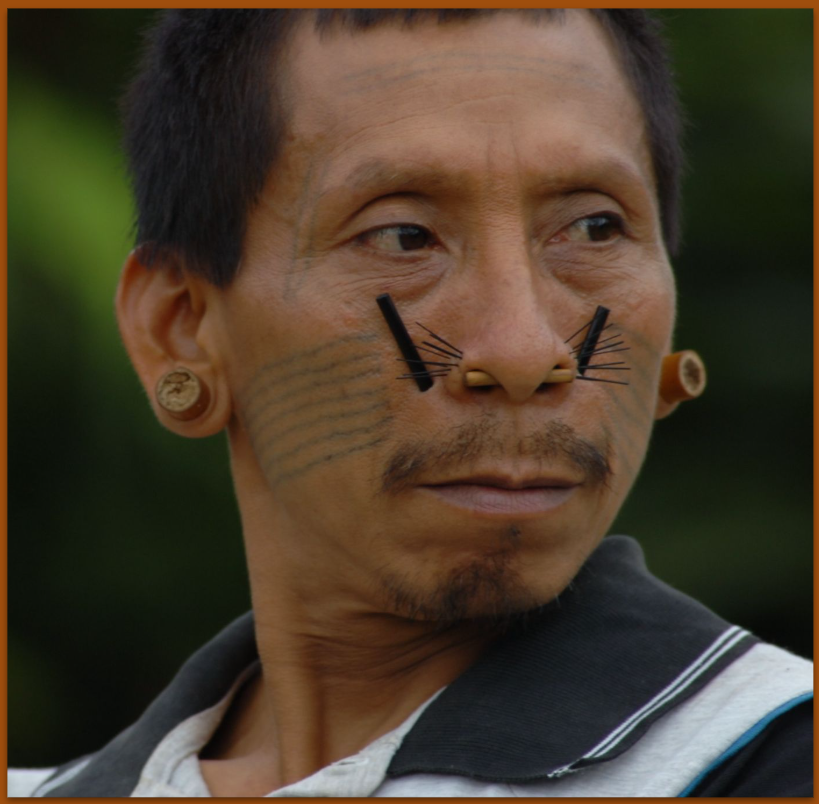
Batek
The Batek people of Malaysia, have a distinctive egalitarian and sharing culture. With a population of around 1,500, the Batek reside in the rainforests of peninsular Malaysia, primarily within the Taman Negara National Park. Known as “orang asli,” meaning “original people” in Malay, the Batek refer to themselves as “Batek Teh,” which translates to “forest people.” They belong to the Semang group and are believed to have descended from the earliest human populations that crossed the land bridges connecting the Philippine islands with mainland Asia.
Typically, the Batek live in familial groups within tents and lean-tos, with approximately 10 families forming an encampment. While each encampment has control over the immediately surrounding land, the Batek do not believe in private land ownership. Instead, they view themselves as caretakers of the land rather than owners. As nomadic people, they move within their habitat shifting locations to flow with animal migrations and fruiting seasons.
The Batek’s practice of no-ownership extends to most resources, including food obtained through foraging. Such items are considered communal and are expected to be shared among the entire society. Only a few items, such as a man’s blowgun or a woman’s hair combs, are regarded as personal property.
The Batek society is known for its peaceful nature, and there are, remarkably, no recorded incidents of them having resorted to violence at any time in their history. To them, violence is a kind of mental illness that needs to be healed by the whole community. In the event of minor conflicts within the group, the involved parties engage in private discussions. If the issue remains unresolved, both parties present their arguments publicly, seeking input from other camp members to suggest a resolution. As there is no internal leader or formal adjudication system, one or both parties may temporarily leave the camp until a resolution is reached.
Sharing food is considered a moral obligation among the Batek. When acquiring food, the person first provides for their immediate family, followed by their extended family and the rest of the camp. This sharing system ensures that even families facing difficulties still have access to food. Sharing resources is deeply ingrained in their culture, as they believe that all food items belong to the forest, and must be shared. The open nature of their dwellings prevents hoarding, and it is not considered stealing for someone to take food from another if they are hungry.
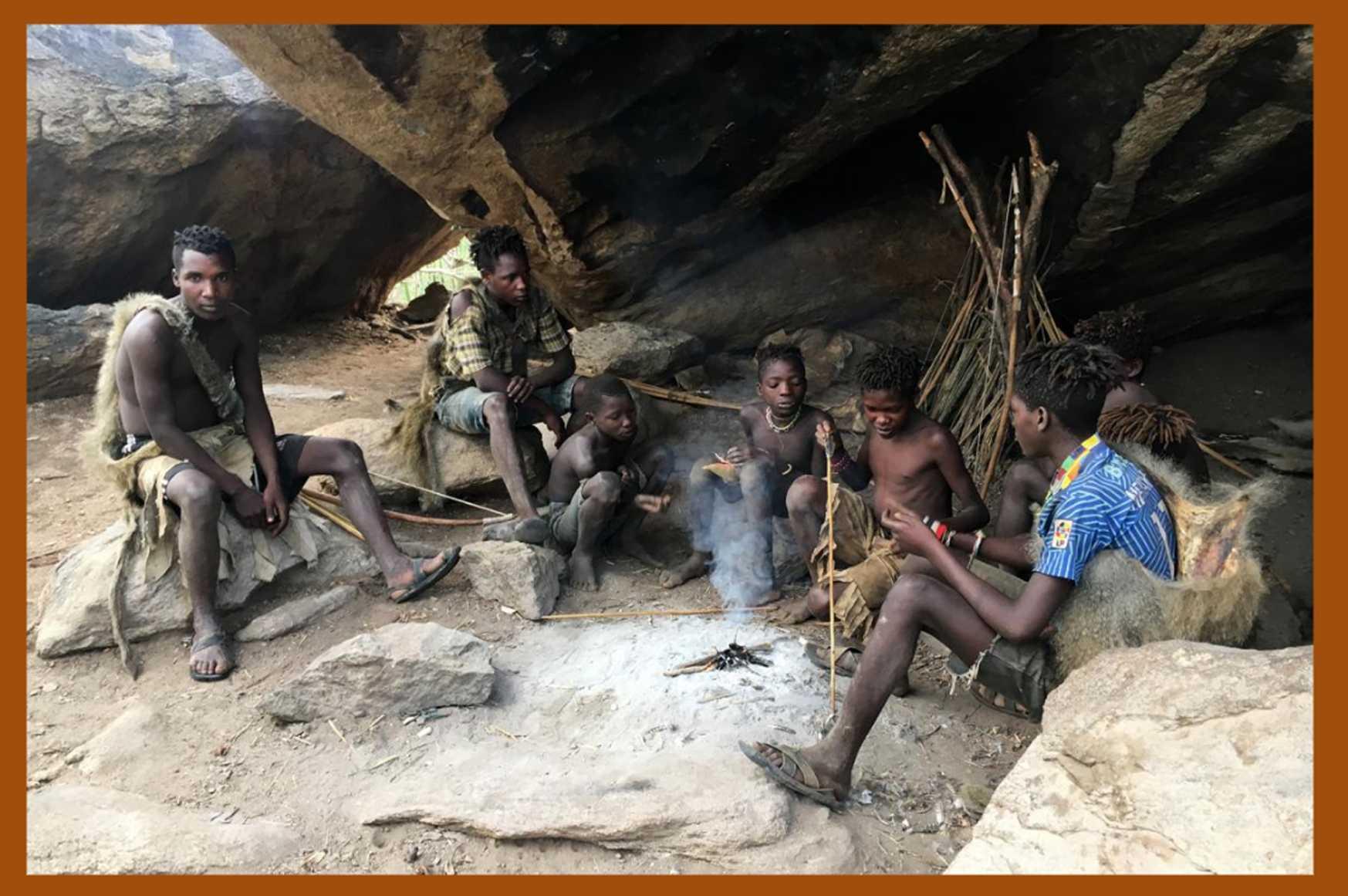
Hadza
The Hadza’s homeland lies on the edge of the Serengeti plains, in the shadow of Ngorongoro Crater near where homo habilis — one of the earliest members of the genus Homo — was discovered to have lived 1.9 million years ago. The Hadza are one of the ‘oldest’ lineages of humankind, speaking a click language that is unrelated to any other on earth.
In the past, the Hadza people thrived solely through their hunting and gathering practices. However, the Tanzanian government’s persistent efforts to settle them have led to a significant transformation in their way of life. Today, only a small fraction of the Hadza population, around 300 to 400 individuals out of approximately 1,300, still maintain their nomadic hunter-gatherer lifestyle, relying on the bounties of the bush for sustenance. The rest have been forced to reside part-time in settled villages, where they supplement their diet with store-bought food, compromising their traditional practices and land rights.
Despite the challenges they face, the Hadza cherish the values of equality and collective sharing. They have no formal leaders, and both men and women actively participate in decision-making processes. Sharing possessions and resources is deeply ingrained in their culture, as they believe it is a moral duty rather than a gesture of generosity.
The Hadza’s close relationship with nature is exemplified by their reliance on natural materials for tools and shelter. They create knife sheaths and bags from animal skins, and their hunting techniques involve cooperating with the honeyguide bird to locate beehives. The Hadza’s sustainable practices ensure the preservation of their environment and have safeguarded them from historical famines.
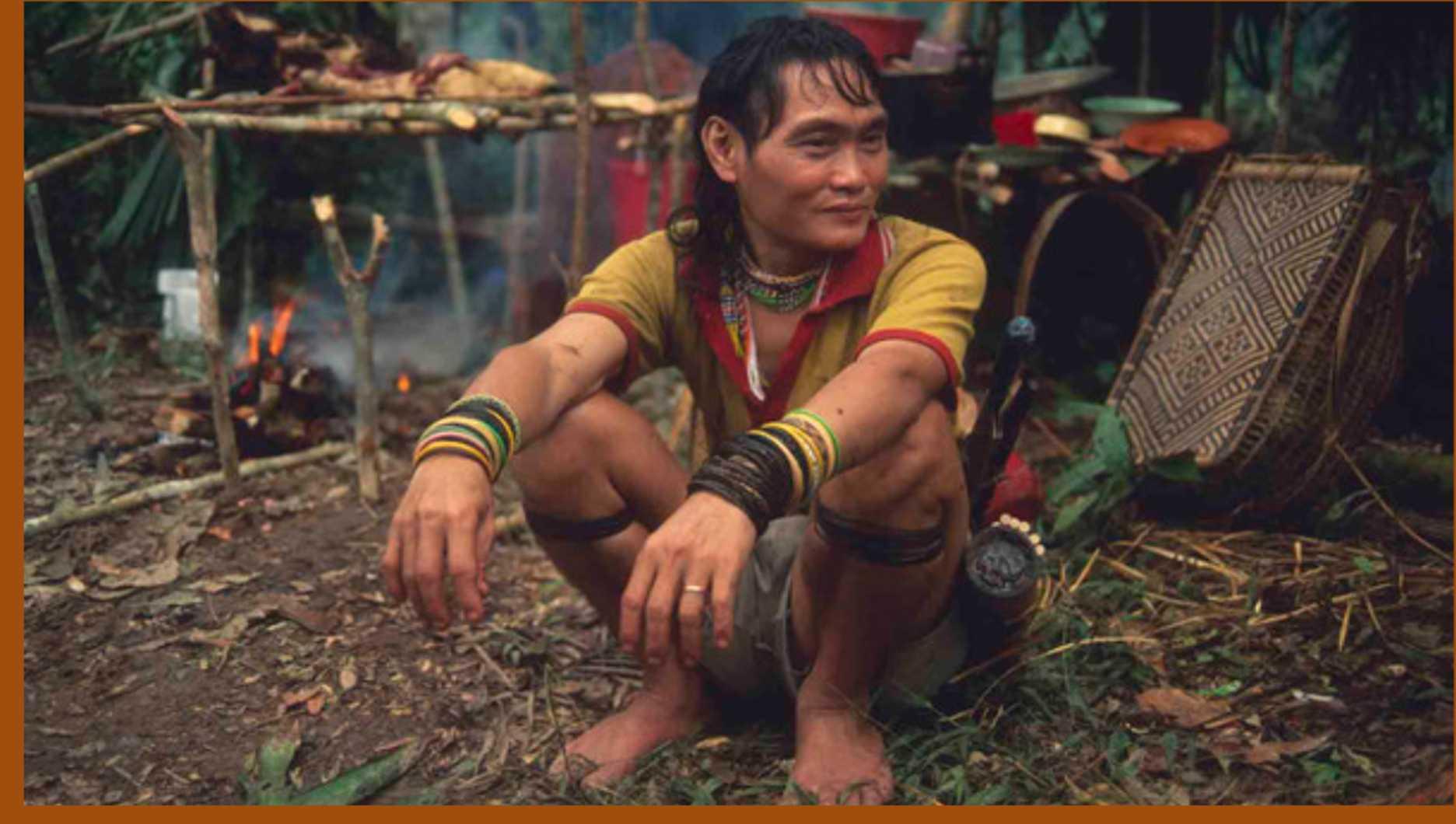
Penan
The Penan, a hunter-gatherer community, reside in the lush rainforests of Sabah and Sarawak, located in the Malaysian part of Borneo. Although historically nomadic, the majority of the 10,000 — 12,000 Penan now live in settled communities while still relying on the forest for their survival. However, there are fewer than five hundred individuals who continue to embrace their nomadic way of life. Unfortunately, the Sarawak state government fails to acknowledge the Penan’s land rights.
The Penan people of Borneo embody the essence of egalitarian principles in their nomadic way of life. Living in the rainforests of Borneo, they have developed a social structure that prioritises equality, cooperation and shared decision-making. Within Penan communities, there are no hierarchical power structures or formal leaders. Instead, decisions are made collectively through consensus, ensuring that every member’s voice is heard and valued.
The Penan demonstrate a remarkable sense of egalitarianism in their resource-sharing practices. In their hunter-gatherer lifestyle, all food and resources obtained from the forest are shared among the community. This ensures that everyone’s needs are met and that no individual accumulates excessive wealth or power. The principle of reciprocity is deeply ingrained in Penan culture, emphasising the importance of giving and sharing without expectation of immediate return.
Egalitarianism also extends to gender relations within Penan society. Women play a crucial role in decision-making processes and have equal access to resources and opportunities. This equitable distribution of power challenges traditional gender roles found in many other societies. The Penan demonstrate that an egalitarian society can thrive when individuals prioritise cooperation, mutual support, and shared responsibility.
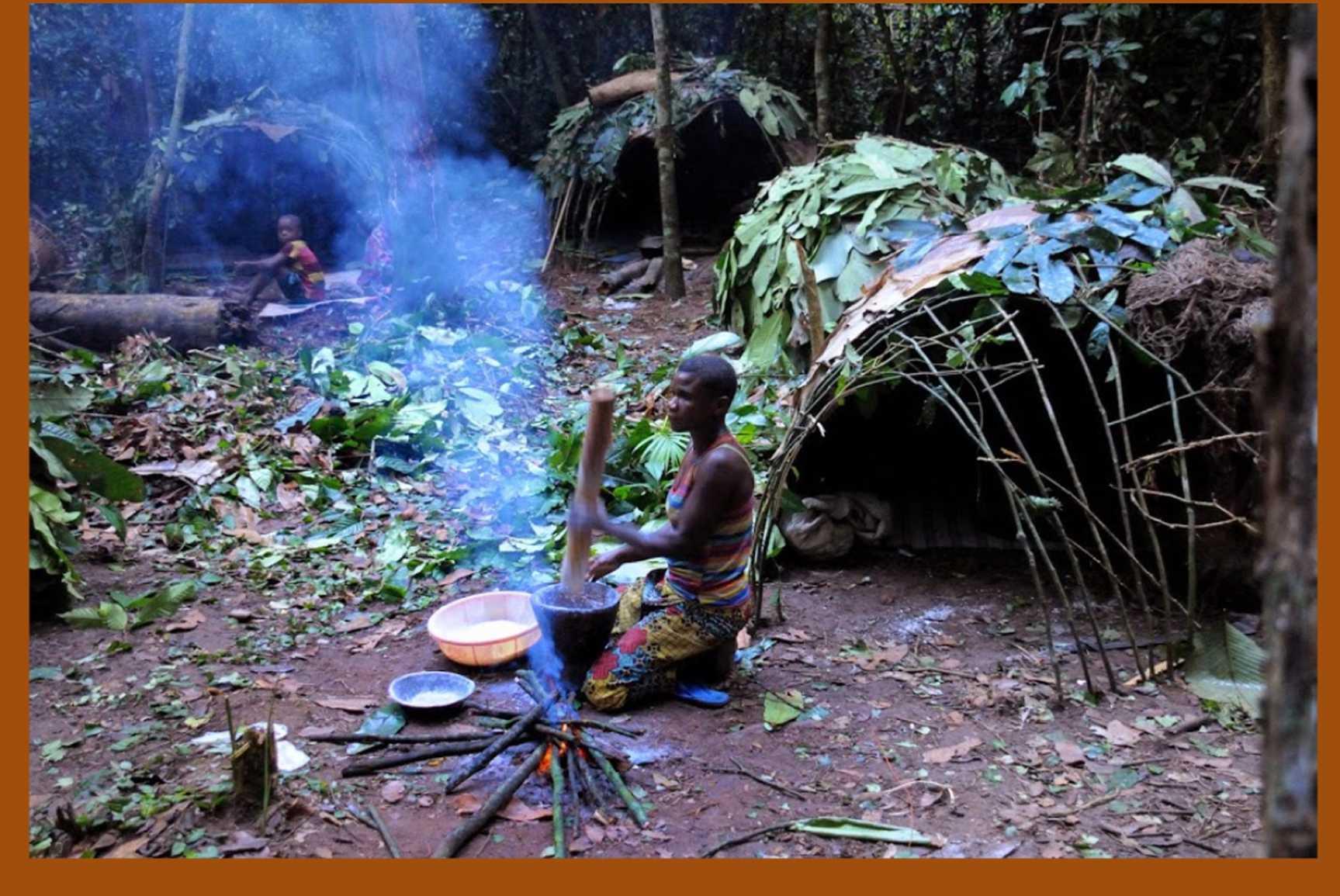
Mbendjele
The Mbendjele people, commonly referred to as ‘Pygmies,’ inhabit the densely forested regions of the Republic of Congo in Central Africa. They are one among several distinct forest-dwelling communities in the region, including the Baka, Twa, Aka, and Mbuti. Despite their linguistic diversity, these groups share a common concept: jengi, meaning the spirit of the forest, which holds great significance in their lives.
The Mbendjele men possess remarkable skills and knowledge of the forest. They are adept climbers, scaling immense trees in search of honey, a valuable resource in their culture. Furthermore, their exceptional mimicry allows them to imitate the distress calls of animals, such as antelopes, to lure their prey out of the underbrush.
The Mbendjele people of the Congo embody a deep commitment to egalitarian principles within their nomadic society. Living in the dense forests of the Congo Basin, they have cultivated a social structure that emphasises equality, cooperation, and collective decision-making. Hierarchical power structures and formal leadership roles are absent, and decisions are made through consensus, ensuring that every member has an equal voice and influence.
Egalitarianism is at the core of the Mbendjele culture, and it is reflected in their resource-sharing practices. All food, resources, and communal property are shared among the community, ensuring that everyone’s basic needs are met. The spirit of reciprocity and mutual support is fundamental to their way of life, fostering a strong sense of interdependence and solidarity among the Mbendjele people.
There are approximately 200,000 Mbendjele living a traditional life today, making them the largest intact egalitarian society still in existence on the planet.
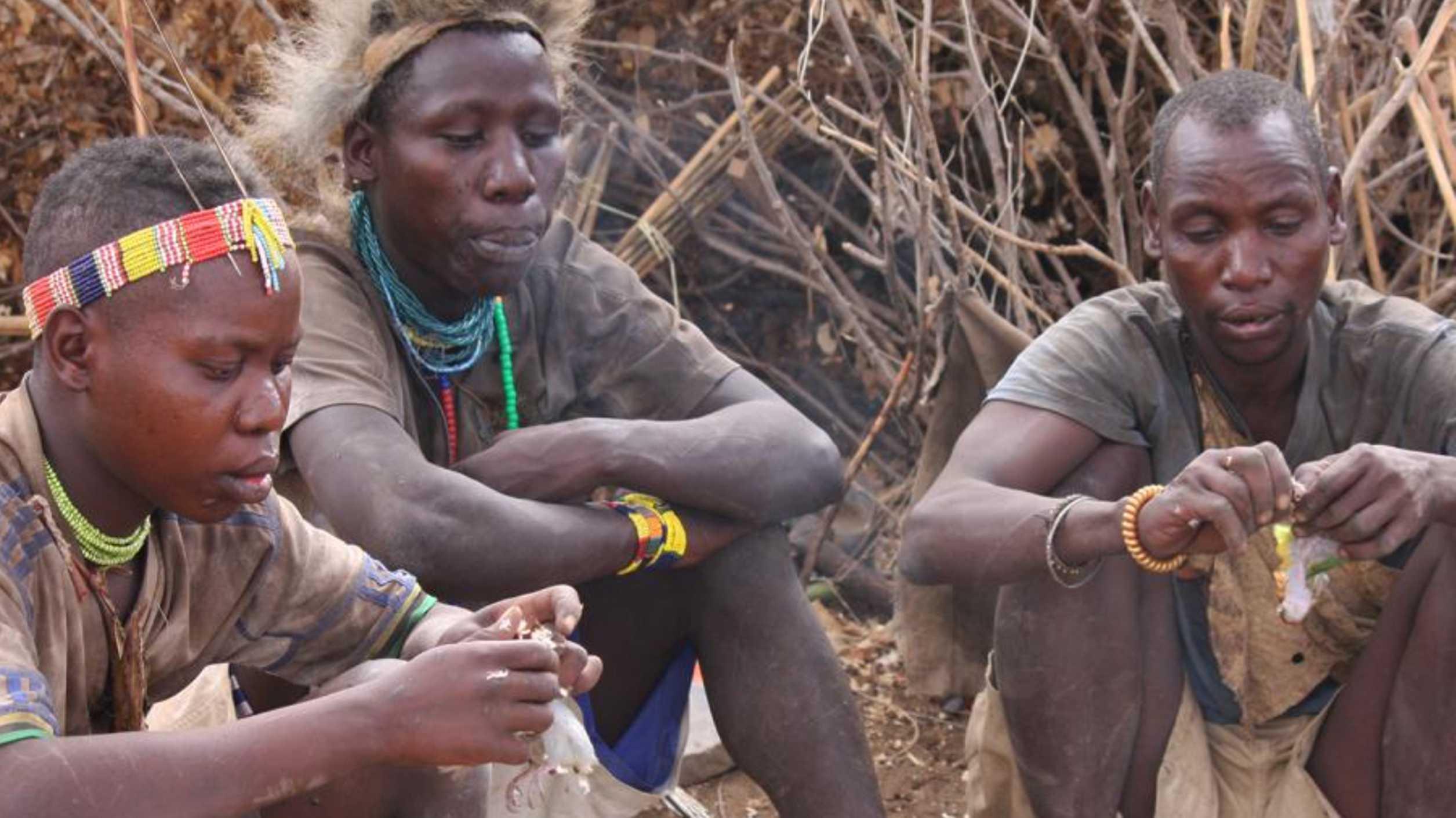
Egalitarian Principles
Through our exploration of the Penan, Mbendjele, and other indigenous tribes, we discover that societies unaffected by the Neolithic revolution share significant cultural traits. While each culture is unique and has adapted in its own way to its respective environment, they all still uphold a number of principles in common. These shared principles stand in stark contrast to the competitive, hierarchical way of life that has shaped the rest of the world since our departure from the tropics and the onset of agriculture.
The common principles for all remaining egalitarian societies relate to themes such as: hierarchy, coercion, ownership, accumulation, status, decentralisation, narrative, sex and gender. By examining these areas, we gain valuable insights into how egalitarian societies navigate their relationships. Ultimately, each trait tackles a specific way in which power, in its myriad forms, presents itself in society. These include:
Hierarchy
In egalitarian societies, the concept of leadership takes on a unique form compared to our conventional understandings. Unlike elsewhere, there are no fixed figures like chiefs, shamans, or designated leaders for hunting, crafting or healing. While certain individuals may naturally excel in these activities and garner voluntary followers, their leadership is contingent upon remaining unaffected by their role. Any attempt to grasp power or elevate their status is swiftly met by the withdrawal of followers and often accompanied by ritualised ridicule, bringing them back to the level of equality shared by all.
It is noteworthy, however, that on the rare occasion an extractive corporation is willing to listen to the concerns of a resident tribe, they demand one person be the representative. As a result, spokespersons have been appointed and sometimes called leaders. But this is a misunderstanding, as this role does not embody authoritative power and is often assigned to the humblest individual within the group. The spokesperson’s influence is limited to voicing the collective consensus of the community and holds no independent decision-making authority.
Coercion
Certain egalitarian tribes, particularly those found in Southeast Asia, are recognised for their non-coercive nature. Such cultures have effectively removed the practice of control or manipulation from one group or individual to another. Remarkably, this principle extends even to the relationship between parents and children, where there is no inclination towards commanding or forcing obedience. Instead, every member of the community, regardless of age or position, is regarded as a fully autonomous and free participant.
Ownership
In egalitarian societies, the concept of individual ownership is largely absent. Various tribes approach this notion differently, but the underlying principle remains the same: a rejection of exclusive material ownership. The Penan, for example, embrace a culture of sharing and giving, operating within a gift economy where resources are freely exchanged. On the other hand, the Mbendjele exhibit a different approach, practising demand-sharing, where items not currently in use are available for others to freely take. Despite these differences, both groups adhere to the philosophy of non-ownership, ensuring that all resources are circulated and shared among community members. However, it is important to note that some tribes recognise ownership in certain contexts, such as ideas or songs, which are considered individual creations and are afforded a sense of ownership. Violating this understanding, such as borrowing someone else’s song in the Mbendjele culture, is regarded as a grave offence.
Accumulation
In egalitarian societies, the accumulation of wealth and resources is not encouraged as it can lead to the concentration of power in the hands of a few. Instead, the principles of sharing and demand-sharing are upheld, ensuring that resources are distributed among the community in a way that prevents the accumulation of power by any individual or group.
Such groups believe that everything from nature is meant to be shared by all members of society, fostering a sense of equality and preventing the emergence of hierarchies based on material possessions. This practice ensures that no one has the ability to wield power over others through the control of resources.
Status
In all societies, power has the potential to be exerted and felt in numerous ways beyond simple and overt leadership positions. Traits such as force-of-character or exceptional skills in hunting or crafting can grant individuals a certain level of influence. In so-called meritocracies, which most Western civilisations proudly consider themselves to be, such attitudes are not only the norm but lauded as morally right. However, egalitarian cultures have intricate mechanisms in place to prevent the accumulation of power in order to maintain a sense of equality. These mechanisms vary among different cultures but share the common goal of limiting status enhancement.
Methods employed by egalitarian societies to counteract power imbalances can include social sanctions and practices. For instance, if someone boasts or shows off their hunting prowess, they may face consequences such as being refused participation in group hunting or the women refusing to cook their kill. In some cultures, arrow sharing ensures that the person who made the kill does not retain exclusive control over the meat distribution. Additionally, successful hunters may be denied any meat at all or may face ritual ridicule to emphasise the modesty of their catch. These practices serve to prevent the accumulation of status (and thus power) and reinforce the collective commitment to equality. The responsibility of addressing power imbalances lies with every member of society. It is a decentralised process in which individuals are duty-bound to speak out against any attempts to grab or consolidate power. This collective vigilance helps to ensure that no one is able to accumulate more power than others.
Decentralisation
According to egalitarian tribespeople, power, when centralised or fixed, inevitably becomes corrupted over time. This observation does not imply that individuals are inherently nefarious, but rather highlights the tendency that those who receive power often abuse their privileges and attempt to maintain their position rather than empower others. The very nature of power has the potential to corrupt even the most well-intentioned individuals, as seen in popular psychological experiments, such as the Milgram experiment. Egalitarian tribes have a deep understanding of this dynamic, to the extent that even esteemed groups like elders are not granted additional say or authority. In these societies, every person, irrespective of age, sex, or contribution to the community, holds an equal voice in decision-making processes and receives an equitable share of all gifts and resources.
Narrative
Culture is fundamentally built upon stories, serving as our species’ most potent tools for coordination and interaction across vast regions and populations. Narratives shape our beliefs and values, enabling us to navigate complex societal structures. Whether it’s money, nationalism, religion, or ideologies like communism, capitalism, and meritocracy, all are narratives that influence our collective behaviour.
For egalitarian hunter-gatherer societies, the central unifying narrative revolves everywhere around equality. However, this notion of equality is not about sameness, as differences between individuals, and groups such as men and women are not only recognised but celebrated, an oft-misunderstood concept in Western civilisations. Instead, egalitarian equality emphasises equity in status, in the receipt of an equal share in the essential bounty, and the inclusion of all individuals in decision-making processes related to their lives.
Remarkably, the narrative of “equality” transcends geographical boundaries and is still embraced by a few hundred thousand Pygmies in the Congo today. These tribes exemplify how the egalitarian concept extends beyond small groups, as individuals from different territories, despite being unrelated, treat one another with equality. This highlights the potential of egalitarianism as a unifying belief system to connect vast numbers of people across extensive landscapes, suggesting that it might have been a pre-tribal way of existence that once harmoniously united all of humanity.
Sex and Gender
In egalitarian tribes, one of the most remarkable observations is the influential role of women. However, it is important to note that this does not mean women are in charge, as an egalitarian society rejects hierarchies, including matriarchy. For example, the women of the Mbendjele understand that holding onto power would only breed resentment and undermine the egalitarian principles they uphold. Instead, the power of women lies in their unique collective embodiment. Through solidarity and unity, they demonstrate that they don’t need to emulate men or adopt masculine traits to exert influence. Rather, women harness their power through singing, dancing, playing, teasing, and embracing their sexuality. They hold men accountable in powerful ways, publicly, but with love, inclusion, and without dismissing or excluding them. In many ways, women serve as the nurturing container that allows the entire society to function harmoniously, achieving this through strong bonds of solidarity and sisterhood.
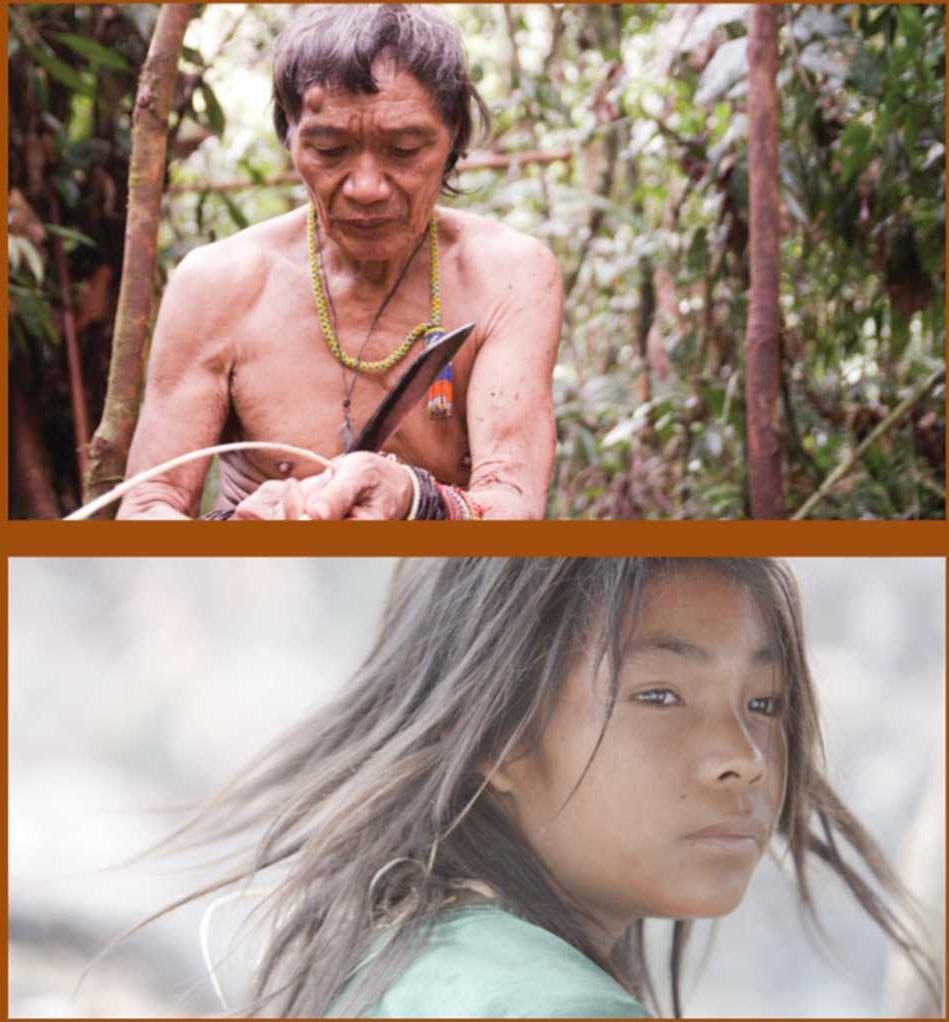
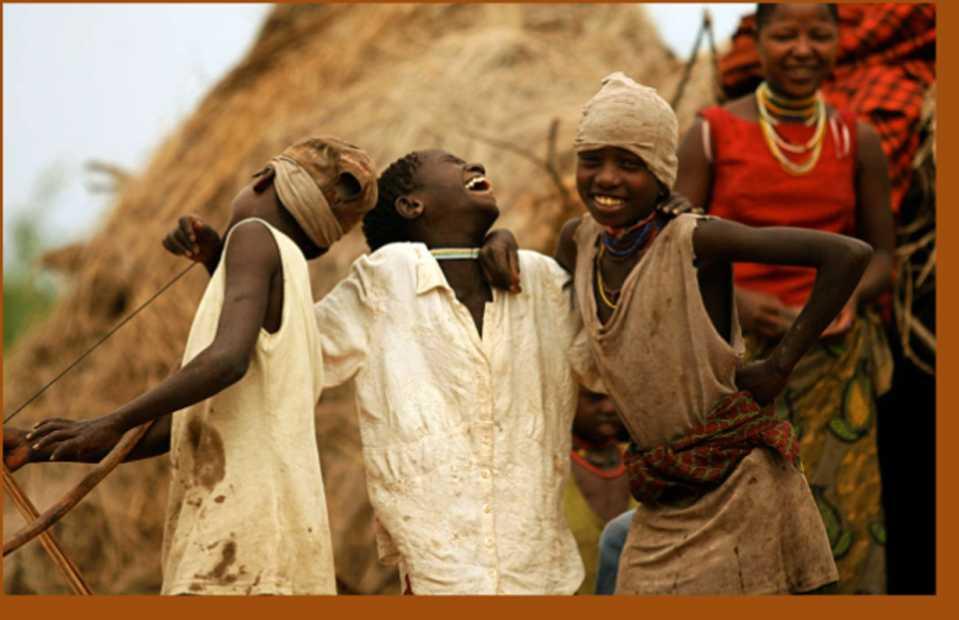
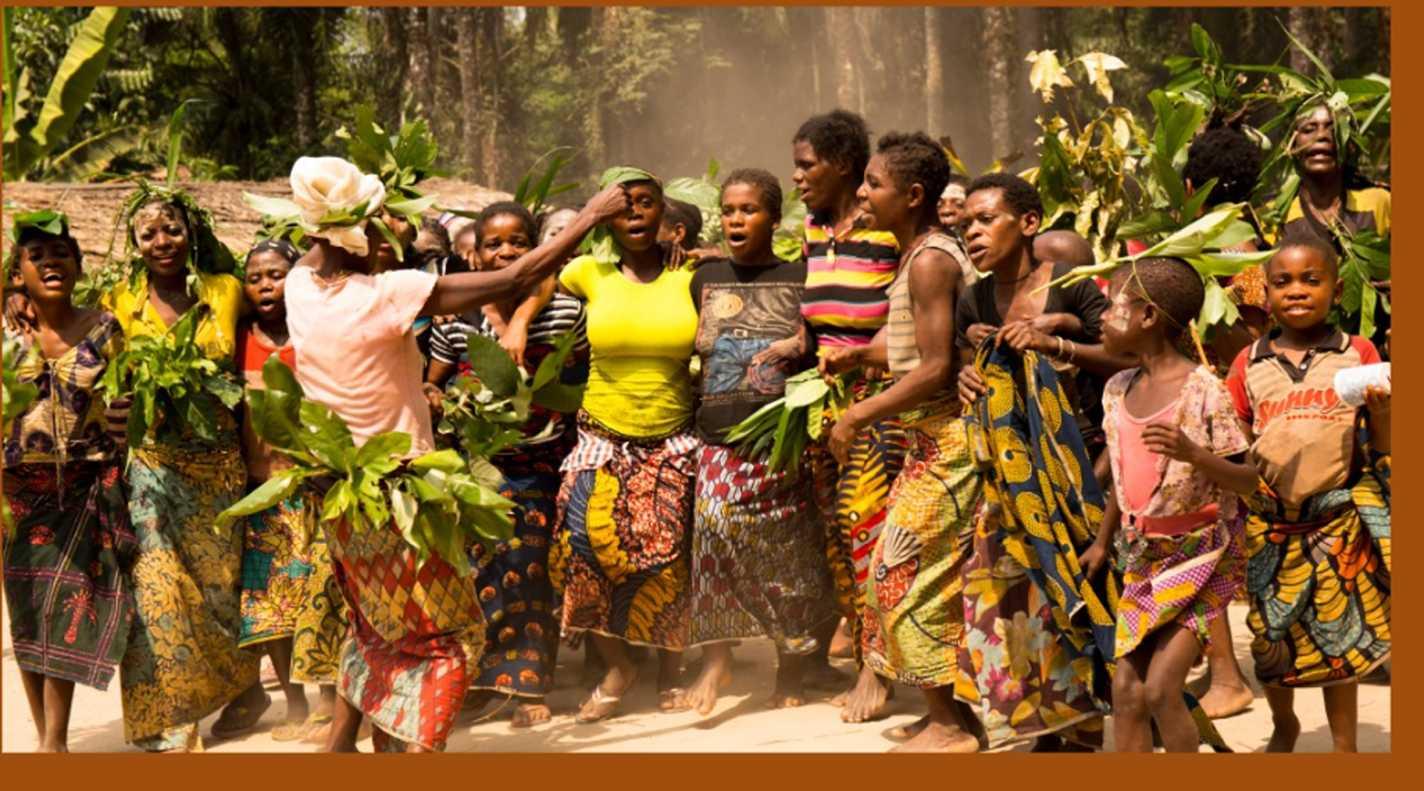
The Egalitarian Story
Formation
If we were to observe a typical wildlife documentary showcasing the fierce competition and aggression in the animal kingdom, or if we were to tune into the news highlighting the violent nature of our modern society, it would be understandable to assume that such a winner-takes-all, dog-eat-dog environment has always been the norm throughout human history. However, the existence of egalitarian societies challenges this assumption.
Contrary to the belief that all human societies have always been competitive and aggressive, there are communities in existence today that have largely eradicated competition and hierarchy from their midsts, living without rule, leaders, or hierarchical structures. These societies, essentially anarchic, have been recognised as the most peaceful on Earth.
Determining the exact origination of egalitarianism as a way of life poses challenges, yet the evidence strongly supports its existence throughout a significant portion of our history. Particularly compelling is the presence of egalitarian practices among all peoples in the tropical regions of Africa and Southeast Asia who remain untouched by the transformative effects of the Neolithic revolution.
To explore the beginnings of egalitarianism in our species, we delve into the captivating Equals ritual, meticulously studied by Anthropologist Jerome Lewis. This ritual is believed to reenact a pivotal moment when our female ancestors rejected alpha male dominance and invited all the remaining, non-alpha, men to live with them. The fact that the Mbendjele Pygmies of the Congo are likely the oldest unbroken, and unacculturated, lineages of people on the planet, makes the ritual all the more compelling.
This leads us to question why our female ancestors chose to reject the alpha male in the first place. Accepting the genetic material from dominant males is the norm in other primate species and probably was present in our own primate ancestry, so why did our female ancestors want this to change?
Anthropologists Chris Knight and Camilla Power propose a compelling hypothesis: the shift to an upright posture triggered a significant transformation in our species. Narrower hips resulting from this change led to birthing complications, and only those giving birth prematurely survived. The resulting premature offspring, helpless and in need of extensive care, were not adequately supported by the alpha male alone. In response, our female ancestors devised a plan to invite other non-alpha males to live with them, usurping the dominance of the alpha. This revolutionary rejection may have taken millennia and even required evolutionary shifts to achieve success. The concealing of signs of fertility and the synchronising of female fertility cycles is unique to our species. If true, these adaptations may have helped enable a collective resistance to the alpha male’s advances which would have been impossible alone. Once the women were in such solidarity, a sex strike could commence and the invitation to the other males to come and live with them might have better success. If so, this represents the transition from hareem-based alpha-dominant societies to the cohabitation of men and women prevalent in our species today. Remarkably, the continued reenactment of this pivotal moment, as seen in the Equals ritual among the Mbendjele people, provides us with a phenomenal connection to our historical origins.
If this hypothesis holds true, our ancestral women may have achieved the only truly peaceful revolution in history, dismantling aggressive hierarchies dominated by apex alpha males and establishing societies based on equality. In contrast, notable recent revolutions such as in Russia or in France have been marred by violence and have often replaced one form of hierarchy with another.
The film “Equals” will delve into the success of these women in their revolution and explore how we can draw inspiration from them once again. It will examine the methodology behind their actions, emphasising the women’s understanding that undermining and rejecting the alpha’s power base was their best way to success, as trying to challenge it by force would only lead to a conflict that would be impossible to win. This understanding echoes the sentiments expressed by visionaries like Albert Einstein, Audrey Lorde and Buckminster Fuller, who understood that tackling the problems of today and diffusing the power structures requires new tools, new kinds of thinking and to create alternative systems that render existing ones obsolete. The film will invite viewers to engage with this transformative way of thinking, fostering a new revolution that replaces unbridled power with a world grounded in equality.
Dissolution
Determining the exact duration of egalitarianism as a way of life poses challenges, but the evidence strongly supports the notion that it prevailed as the predominant mode of human existence for a significant part of our species’ 200,000-year history. If it did indeed begin when our ancestors first stood upright and rejected the alpha male, and lasted until the Neolithic revolution and beyond, then egalitarianism was our prevailing social form for 95% of our time as a species — no small insight! This renders egalitarianism our most resilient way of being and adds gravitas to the critique of our species’ return to the more primate-like, hierarchical and competitive ways that we almost all live with now — a way of being that could well be at the heart of the many social and ecological problems we are experiencing in the world today.
Of course, there have been many advances and benefits gained from the world of power and hierarchy that we have lived with for the last ten millennia. Clearly, the industrial and technological advances of our species are remarkable. They reveal our creativity and genius, and while there is no questioning our ingenuity, the fact remains that this may all be for nothing if we destroy ourselves and millions of other species in our building of the Tower of Babel. The question is whether we will be capable of merging the old wisdom of how to live together harmoniously with the technologies of today.
It is generally believed that the transition away from egalitarianism towards hierarchical structures occurred with the advent of agriculture approximately 10,000 years ago. As our ancestors ventured beyond the tropics and encountered harsher environments, the necessity to navigate droughts and winters likely drove the need for leadership and power dynamics. Likewise, the accumulation of food resources became a possible source of individual power in these challenging times.
Furthermore, despite the introduction of agriculture opening up new possibilities, it also brought forth its own set of challenges and disasters. Crop failures and the resulting competition for sustenance among neighbouring groups may well have intensified the struggle for survival. Agricultural societies also experienced rapid population growth compared to relatively stable hunter-gatherer societies, necessitating the expansion of the agriculturalist territories and the deforestation that always accompanied them. Hunter-gatherers and agriculturalists cannot coexist on the same land and so the rapid expansion and migration of this new farming way of life was sure to extinguish the lives and ways of the hunters and foragers who came before. A sad footnote to our human story and one that the Penan, the Hadza, the Mbendjele, the San and the Batek who are still eking out a life in the world’s last remaining refuges, know so tragically well.
Dissolution
The individual, localised reasons behind the many varied departures from egalitarianism and return to our primitive hierarchical ways are undoubtedly complex and varied. Nevertheless, the consequences unleashed a social evolution that, unless checked, may prove a colossal misstep for our species. Once the wheels of power and hierarchy were set in motion, they spread relentlessly, replacing foraging with agriculture and leaving no room to halt their progress.
In the film Equals, we delve into this profound transition away from our egalitarian past, seeking to understand the motivations that led our ancestors to abandon sharing narratives and embrace hierarchical structures. By exploring the multifaceted reasons that influenced this shift, we aim to shed light on the consequences and implications of this social evolution. While our egalitarian past remains a remarkable chapter in our history, the film challenges us to critically examine its relevance in the present and consider how we can shape a more equitable future.
An easy assumption would be to presume that our egalitarian past is confined to our ancestral history and unlikely to be replicated in the present or future. While it may be true that our ability to embrace egalitarianism was enhanced by our nomadic lifestyle in tropical forests, where resources were plentiful and accessible to all, Equals will explore how we can draw inspiration from our egalitarian roots and apply those principles to address the complexities of our modern world.
Re-Integration
Equals will be a thought-provoking exploration, reimagining a future grounded in egalitarian principles while also posing challenging questions: What will be the consequences for those in affluent nations who seemingly benefit from the current system? How will our lifestyles and societies undergo transformation during this transition? What are the risks involved in redistributing power locally and what will the implications globally be if this is not a universal shift? Ultimately it will ask, what will be the long-term implications of merging ancient wisdom with modern technologies? While definitive answers may elude us, the film firmly asserts that failing to address these issues poses significant risks to both our environment and social well-being, if not our very survival as a species.
The film will highlight several concrete ways in which the principles of egalitarianism can be implemented in complex societies today. Some of these initiatives are already in motion and will be showcased in the film, demonstrating practical steps towards creating a more equitable world.
The Movement
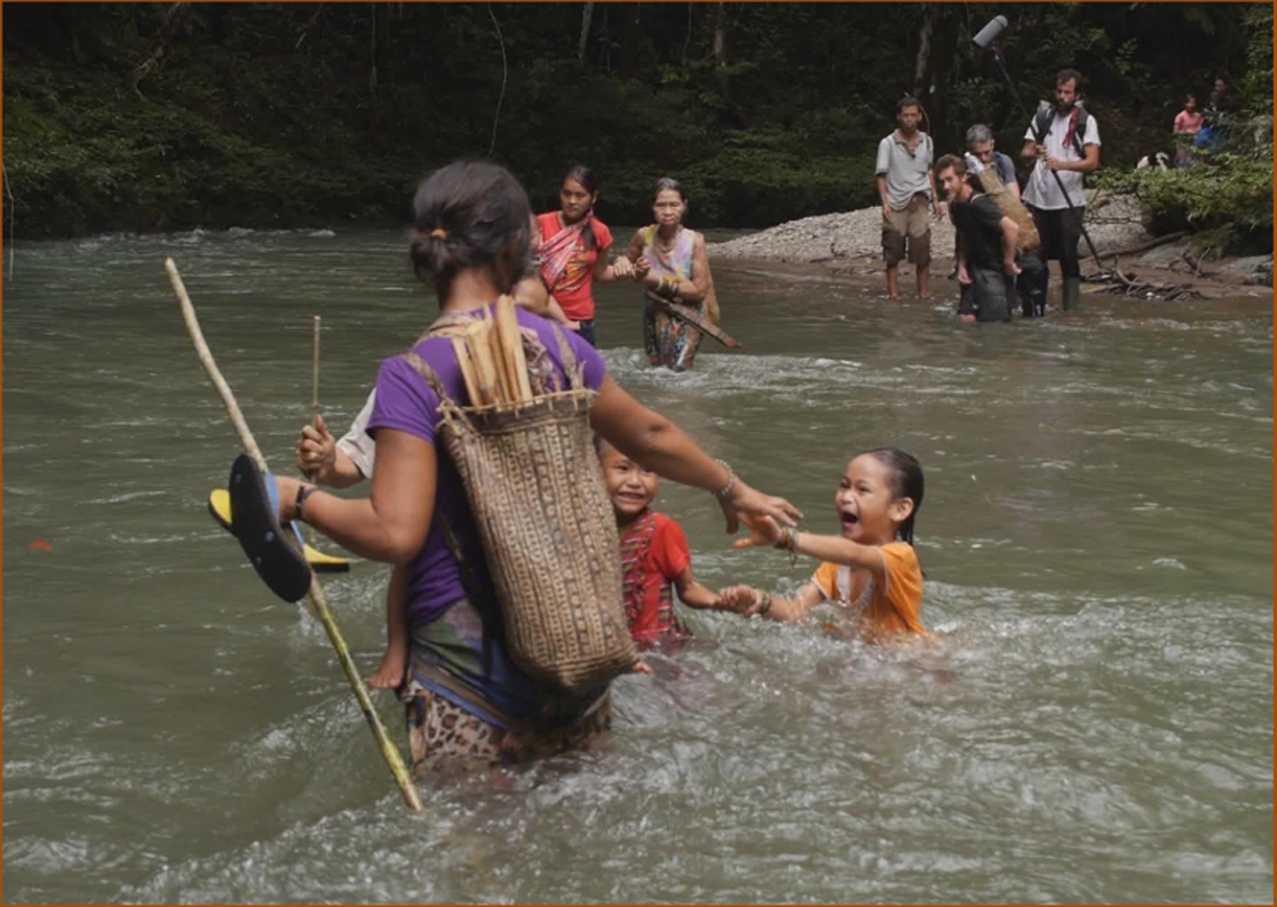
Equals is a film that ignites a movement for positive change and drives action. We are maximising the opportunity with this powerful medium to transcend the screen, inspiring viewers to step out of their seats and make a tangible difference in the world. Therefore, alongside the film, we will create a movement, providing opportunities for engagement beyond the film itself.
As part of the movement, we wish to capture as many people who are interested in the subject matter as possible. We aim to provide a variety of ways to join the movement to maximise the opportunity with the film and its audience. We will create a digital ecosystem and foster a thriving community alongside the film, enabling individuals to openly express their opinions on the subject matter.
We understand the importance of inclusivity and understand that different individuals may connect with the cause in various ways. Therefore, the film will offer multiple entry points and participation options to cater to a wide spectrum of interests, motivations, and levels of engagement. We are committed to providing a diverse range of avenues through which people can join the movement. This approach not only expands our reach but also encourages active involvement and fosters a sense of ownership and belonging among participants.
By harnessing the film’s powerful narrative and compelling storytelling, we aim to inspire individuals to take meaningful action and become an integral part of the movement.
Call to Action
Our movement aims to offer a diverse array of involvement options that span across different levels of commitment, allowing individuals to actively drive tangible change. We believe in providing opportunities for engagement that align with varying levels of output and commitment from our participants. Here are examples of the call-to-action points we will provide:
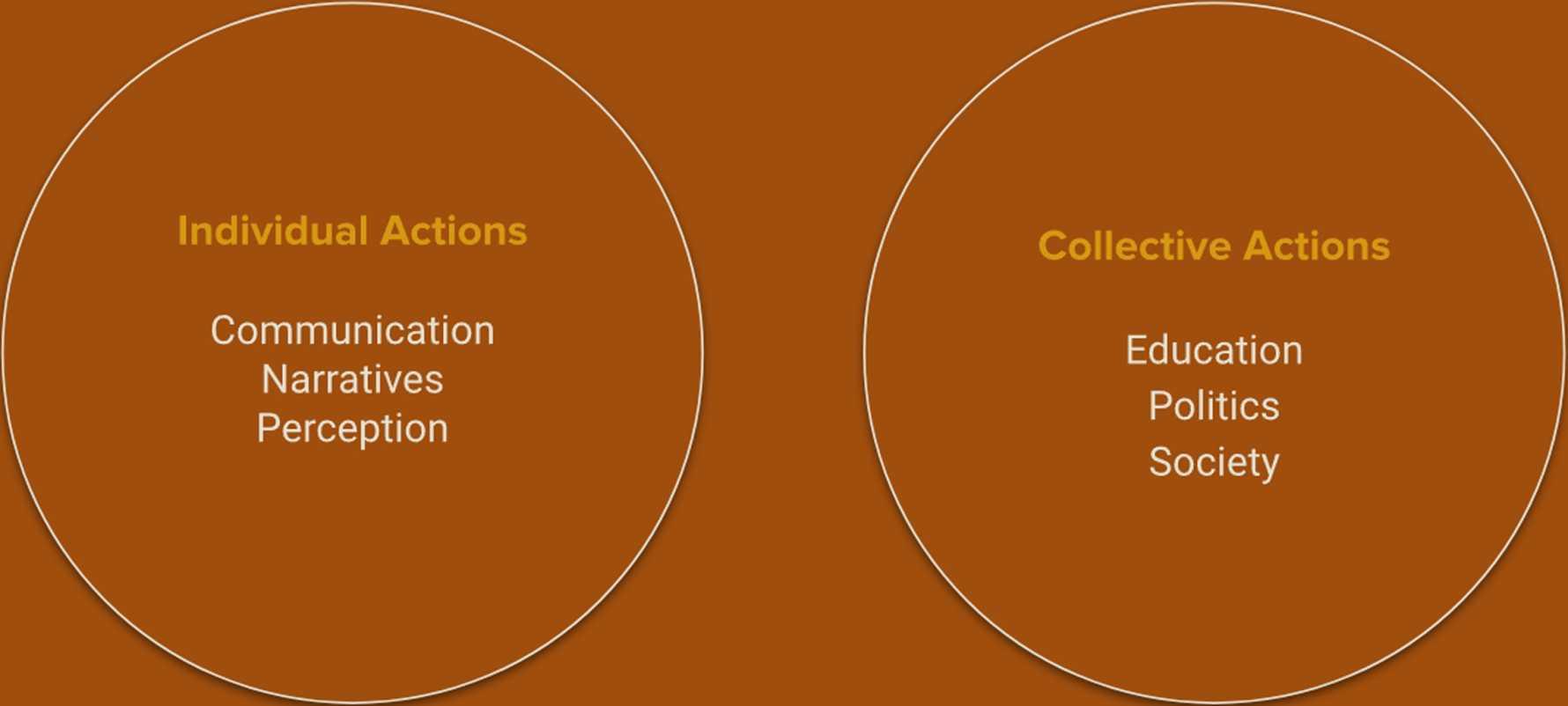
Individual Actions
Perception — It all starts with perception. The first step any one of us can make is to start believing that an equalising of power in all its forms is possible.
Narratives — The stories which society tells us are all almost completely upside down and facing the wrong way. We can all start challenging and reimagining these narratives.
Communication — We can all start speaking to power when we see it and especially when we see its corruption.
Collective Actions
Education — The democratic school system. A way to defuse coercion and inspire autonomy in education.
Politics — The Equals vote app. A way of defusing centralised power and reinfranchising and reconnecting everyone everywhere.
Society — Plant medicines, meditation, yoga. Tools for healing and reconnecting with each other and nature.
Collective Action: Education
Democratic Schooling. How to (re)empower the next generation
The democratic schooling system represents a paradigm shift from traditional education models by empowering children and fostering an environment of equality, trust, and learning. In this system, children are not subject to control, coercion, and blind obedience. Instead, they are encouraged to explore their individual interests, passions, and unique gifts. By giving students a voice and agency in their education, democratic schools promote a sense of ownership and responsibility for each child’s learning journey.
In a democratic school, the emphasis is on creating a community where everyone’s opinions and contributions are heard and valued. Decision-making processes involve active participation from students, allowing them to have a say in matters that directly affect them. This cultivates a sense of empowerment and fosters a deeper understanding of democratic principles and practices. Students learn to respect others’ perspectives, negotiate conflicts, and develop critical thinking and decision-making skills.
The shift towards inspiration-based learning is another key aspect of democratic schooling. Rather than focusing solely on rigid curriculum and standardised testing, students are encouraged to follow their passions and explore subjects that inspire them. This non-coercive approach nurtures creativity, curiosity, and a love for learning. It also recognises that each child has unique talents and interests, providing opportunities for self-discovery and personal growth.
In essence, the democratic schooling system challenges the traditional notions of authority and control in education. It creates an environment where children are treated as equals, trusted to make meaningful decisions, and supported in their pursuit of knowledge and self-expression. By inviting students to learn from inspiration rather than through rigid indoctrination, democratic schools foster a love for learning that goes beyond mere academic achievement, empowering children to become lifelong learners and active participants in shaping their own futures.
Collective Action: Politics
The Vote App: A Clear Path to Decentralised Power
The Equals Vote App is a revolutionary solution that aligns with a core principle of egalitarianism, namely, decentralisation. Any egalitarian tribesperson will tell you that stuck or concentrated power in any form will inevitably lead to corruption. This resonates with the state of our current industrial societies, where money has infiltrated politics, resulting in self-serving power structures that seem incapable of prioritising the needs of future generations and the well-being of our planet. The Equals Vote App acts as a stepping stone to diffusing this power by removing the decision-making process from the centre and democratising it.
In Western democracies, we have unquestioningly accepted centralised and hierarchical power structures, considering them inherent in nature and, as such, unchangeable. Since childhood, we have been taught to value obedience, competition, and hierarchy, praising these ideals. We embrace the concept of meritocracy, where success is seen to be synonymous with hard work and talent. We also ignore the many indicators that our societies continue to privilege the powerful and render it much harder for the majority to break out of the lower echelons of society, regardless of industriousness or talent. Our leaders extol the virtues of competition in markets and between nations and the rich nations continue to use every possible tactic, many wholly aggressive and oppressive, to maintain our privileged way of life.
Anthropology’s recent acceptance and understanding of our egalitarian past presents us all with a new insight for humanity and a new possible narrative that arrives at a pivotal moment for us all. We know that narratives are humanity’s most powerful tool, enabling us to cooperate and interact with strangers in huge numbers over vast areas. Humankind urgently needs a new narrative of how to live together and with nature, if we are to survive our impending global crises. Today, we not only have such a narrative but also have the ability to universally share it.
We find ourselves in a unique era where global communication is possible, and new technologies such as blockchain, proof-of-personhood, biometrics, zero-knowledge-proof, Decentralised Autonomous Organisations (DAOs) and Web3 are emerging, offering us the opportunity to communicate, decentralise and trust in a way that was not possible until very recently. When combined, these factors create an extraordinary moment in history. We possess both the motivation and the means to effect change, and by harnessing new technologies in line with the principles we have learned from our true ancestry, decentralisation becomes possible once again, removing power from centralised entities and preventing its accumulation.
Collective Action: Politics
The Vote App: A Clear Path to Decentralised Power
There are many ways that these technologies can be utilised to enact some of the principles of egalitarianism, and one simple example is to employ this technology in voting, enabling the transfer of decision-making power away from the centre.
Equals will showcase how the tech is now available to create a voting platform and set in motion the principles by which a truly decentralised open-source voting app could be created. It will outline the complexities and the battleground of trust in society, but make the case that if done right, maintaining openness and transparency, it could win the trust of the majority and reclaim the power to its rightful place.
Imagine an app that allows individuals running for election (local, national, international) to pledge that they will act solely according to their constituents’ wishes. The app would only include verified constituents, thanks to proof of personhood. Once elected, representatives would simply carry out the decisions mandated by their constituents via the app. This approach eliminates the intermediaries that lobbyists typically target, as well as the potential for corruption. Political parties would become obsolete, as representatives would solely follow their constituents’ instructions through the app.
Over time, if the app is utilised sufficiently widely, then the decisions for what to be voted on will also become delegated to the wider society, finally decentralising the whole governing process. People everywhere could then collectively vote on bills and make decisions that truly influenced their livelihoods, addressing whichever issues rise to the top of the collective conscience, as determined by the trustworthy tech. In time, issues such as land rights, taxation and the monetary system may all be explored and adapted if so desired. The civil service and the infrastructure won’t change, just the decisions that affect us all. This inclusive approach would engage everyone and provide them with a voice.
It is worth noting that direct democracy is not egalitarianism, but it could be a vital stepping stone to the re-empowering and enfranchising of people everywhere, leading to an engagement in political and social debate.
Collective Action: Society
Healing
In defence of the French Revolution, the philosopher Emanuel Kant posited, “Freedom is the precondition for acquiring the maturity for freedom, not a gift to be granted once such maturity is achieved.” These words speak to the essence of what many believe when considering the implications of empowering the general populace through concepts like voting apps and direct democracy. There is often resistance to these ideas, with concerns that the general public lacks experience, maturity, and wisdom and that their decisions may have negative consequences for local societies and the nation. Flowever, this film aims to challenge the prevailing belief that important societal decisions should be left solely to experts.
It is true that in most representative democracies, the general population has been disenfranchised for such a long time that many are unaware of how society works and would require significant maturity to make decisions that stand the test of time (think Brexit). The crucial question is whether enough people will embrace their newfound power, learn from their mistakes, and approach the task of organising society with seriousness. The argument for the potential success of this lies in the fact that egalitarianism and collective decision-making have always been our most resilient social forms.
One reason why some may view the disenfranchised sectors of society as incapable of demonstrating wisdom is that they exhibit disruptive and thoughtless behaviours. This may stem from the resentment and anger that arises from being trapped in a closed, stratified society with little hope of upward mobility. Another factor may be the psychological stress and wounds that result from the breakdown of community, particularly when children do not receive the nurturing they need during their formative years. This is a challenge that affects all levels of a fractured society, including the affluent. Healing individual, societal and ancestral wounds will be crucial if people are to come together, collaborate, and make group decisions that benefit the collective.
Luckily, practices like meditation, yoga, and the ritual use of indigenous plant medicines have shown promise in assisting with childhood trauma, PTSD, and many other psychological issues. The hope is that, as people begin to come together in their newfound empowerment to discuss local and national issues, they will need to engage in more meaningful ways. This may reverse individualisation trends and begin to mend community, a vital ingredient to healing society locally, nationally and internationally.
Audience

Core Audiences
Equals is committed to meeting the diverse needs of our broad and inclusive core audiences. During the discovery phase, we carefully considered the preferences and motivations of our target viewers to ensure the success of our film.
The film caters to three key audience segments: Curious, Followers, and Advocates. Tailored content will engage, educate, and deepen their commitment to the cause.
Primary audience: Curious
Our core audience recognises the existence of our current global crises and is eager to contribute, but is unsure where to begin. This audience, which we refer to as ‘Curious,’ is characterised by their limited familiarity with this subject matter, but they possess a genuine curiosity to learn more.
Our approach focuses on understanding their psychological motivations and concerns, rather than relying solely on traditional demographics such as age and gender. Below is an example empathy analysis of our Curious audience, which will be developed over the course of the project:
This initial audience insight will be taken into account when making the film.
Core Audience example
Background
Values & Beliefs: Our target audience feels hopeless, helpless, disenfranchised and overwhelmed when faced with our current global crises. They value exploring new ideas and concepts to overcome these challenges, but are resigned to the fact that it may not even be possible.
Knowledge: The audience acknowledges the existence of global crises but lacks a deep understanding of these vast topics. As a result, they often feel overwhelmed, leading to inaction. They understand that significant behavioural change on a large scale is necessary but seems like an impossible dream.
Contextual Drivers: They care about what other people think of them and they care about the wellbeing of future generations. If they are motivated to engage after watching the film, they will enjoy being part of something bigger and finding meaning in collective efforts.
Motivation
Desire for change: The audience possesses a strong desire for change and progress, but feels held back by their limited knowledge and ability to effect change.
Motivation to engage with the film: Behavioural triggers include word-of-mouth as many are despondent.
Desire to watch the film: This audience demonstrates high levels of curiosity and is genuinely interested in hearing our message. They still retain a level of healthy scepticism and despondency but are open to learning from indigenous wisdom.
Action or Barriers
Support: If the message lands, they are likely to contribute through donations or by spreading awareness or recommending to friends.
Action: While motivated to be part of the change, this audience is relatively new to taking action and requires more guidance than seasoned advocates.
Fears or Concerns: They fear that their lack of knowledge might hinder their ability to contribute effectively. They require a high level of trust in the brand, vision, and the messenger, (primarily Bruce), to engage fully. Additionally, they perceive significant obstacles to getting involved and may have limited time available to commit to the cause.
Call to Action
Our movement aims to offer a diverse array of involvement options that span across different levels of commitment, allowing individuals to actively drive tangible change. We believe in providing opportunities for engagement that align with varying levels of output and commitment from our participants. Here are examples of the call-to-action points we will provide:
Low-action Involvement
Follow our Instagram page to stay updated and connected with the movement’s progress.
Sign up for our newsletter to receive regular updates, inspiring stories, and resources related to our cause.
Share the film and its message on social media platforms to help raise awareness and expand our reach.
Make a donation to support the movement’s initiatives and amplify our impact.
Medium-action Involvement
Lead a community group dedicated to promoting the cause, collaborating on projects, and organising local initiatives.
Be an active part of our community, participating in discussions, sharing insights, and fostering meaningful connections with like-minded individuals.
Attend events, such as workshops, seminars, or panel discussions, where you can learn, exchange ideas, and network.
High-action Involvement
Contribute to the creation of the open-source app aimed at furthering the goals of our movement, leveraging technology to drive positive change.
Share your innovative ideas for actionable steps or initiatives that can propel our cause forward, empowering others to take part and make a difference.
